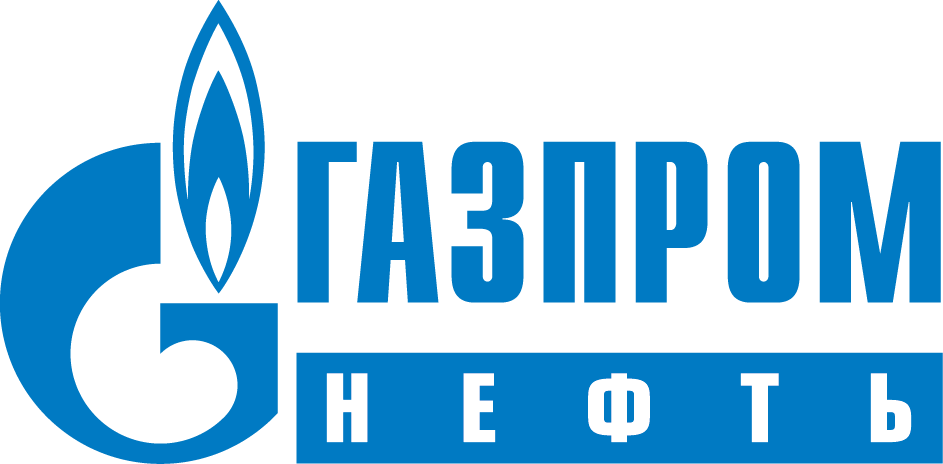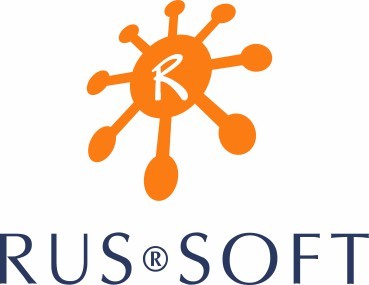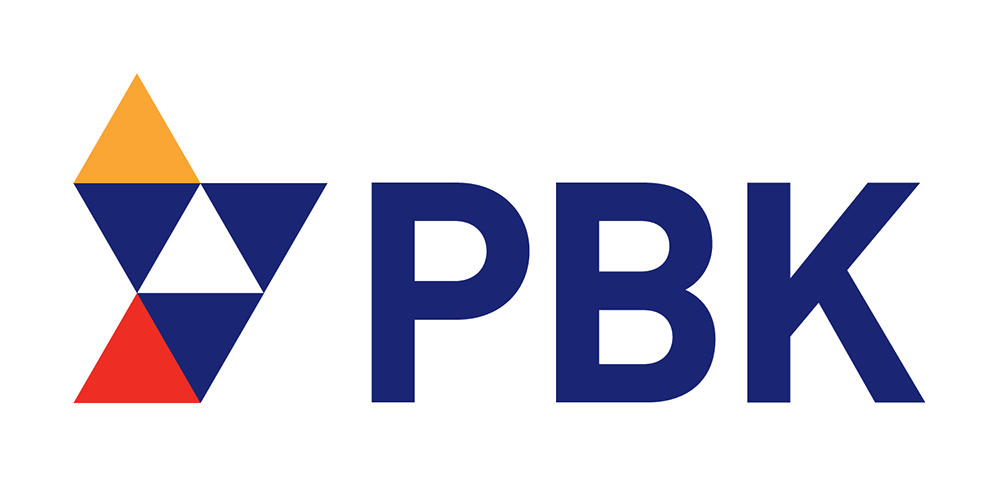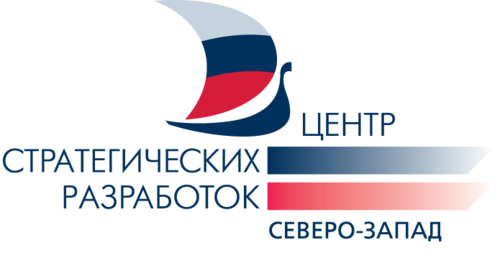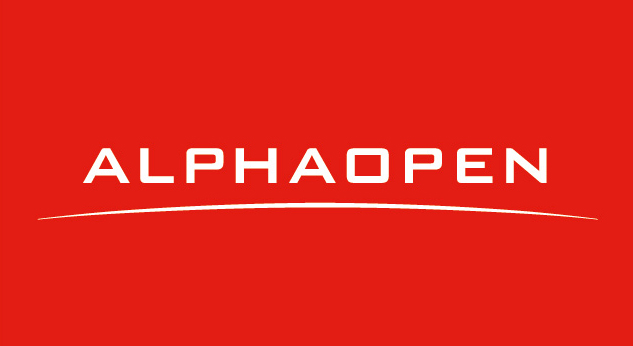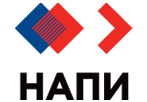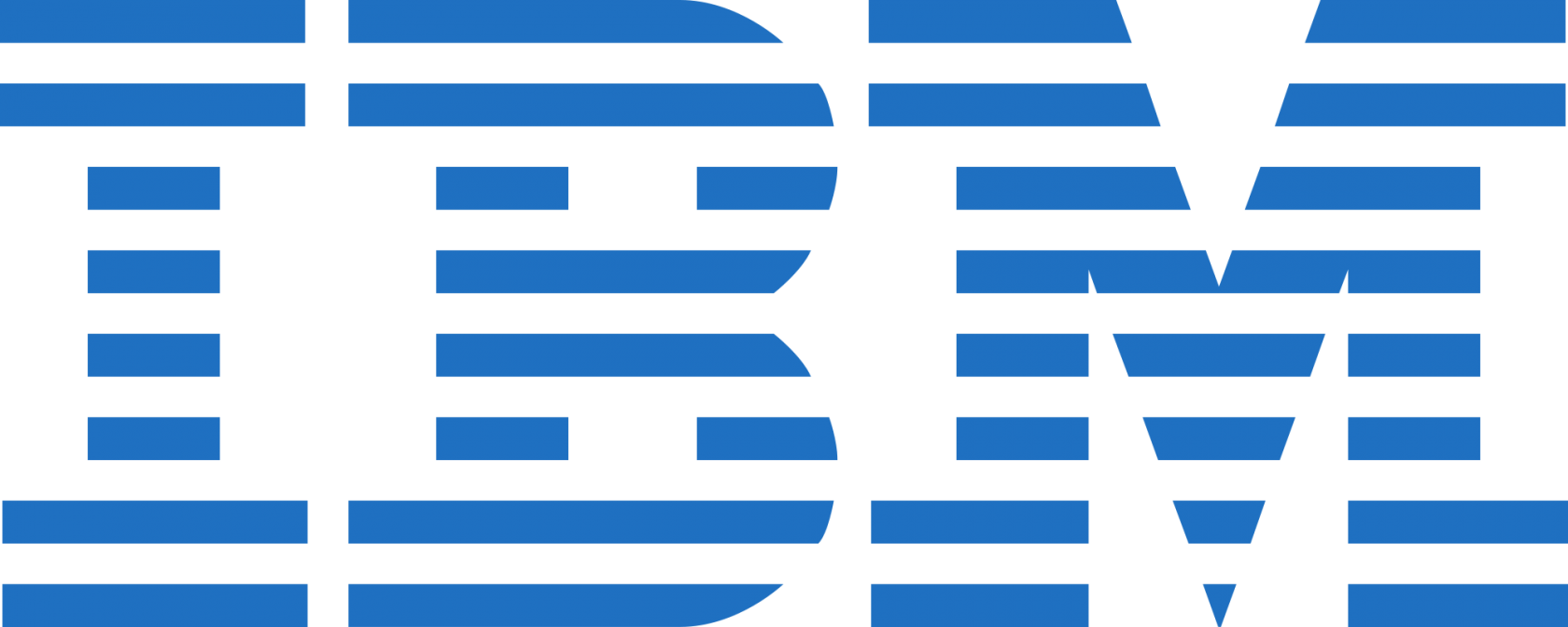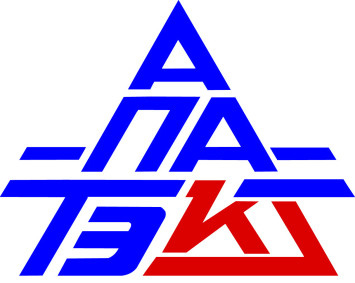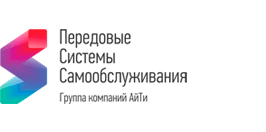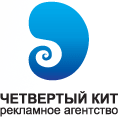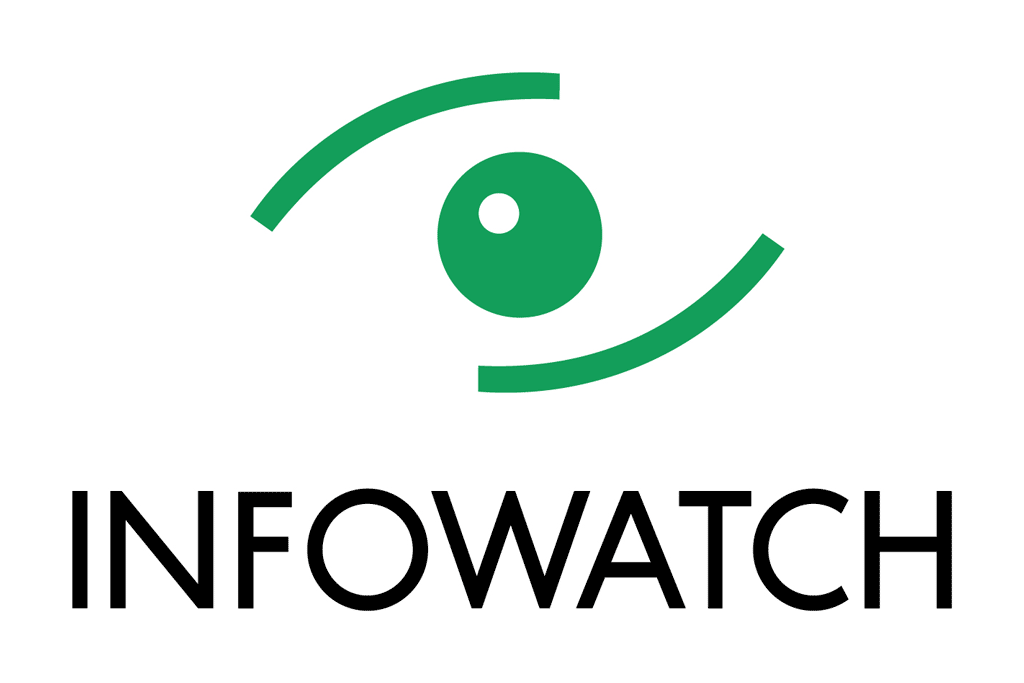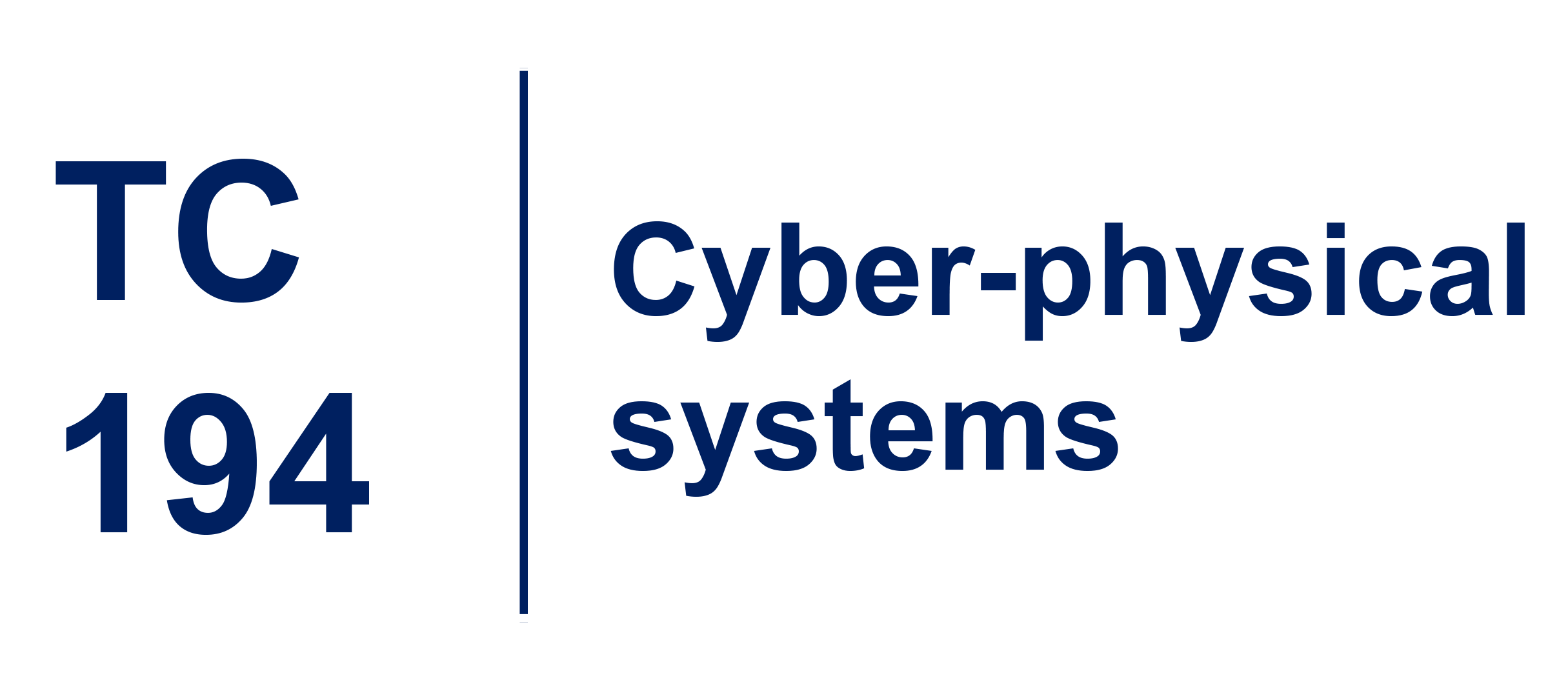
The goal of the technical Committee
Creation of a modern system of normative and technical regulation in Russia
The involvement of a wide range of Russian technology business in the work on formation of modern normative-technical regulation in Russia
Proactive work of Russian experts in the field of regulatory and technical regulation at the international level
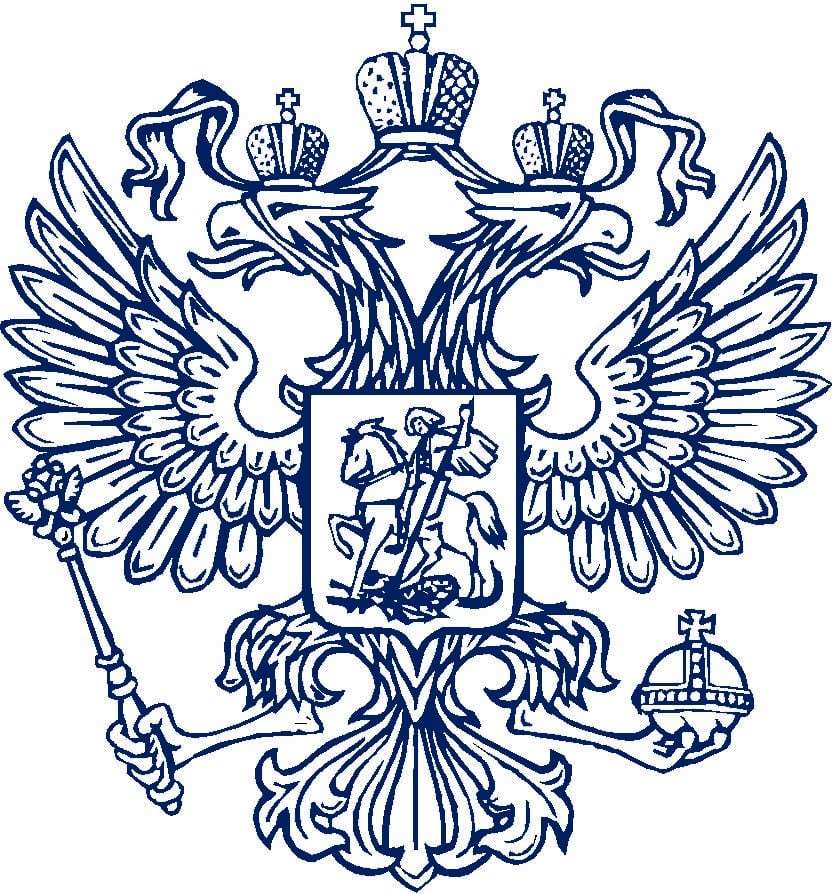


Tasks of the technical Committee
Development and implementation of international standards
1
Development and implementation of national standards
2
Harmonization of international standards at the national level
3
Development of market and technological expertise in the direction of advanced technologies
4
Solving problems of normative and technical regulation within the framework of key state programs
5
National Technology Initiative (NTI)
The program "Digital Economy of the Russian Federation"
Formation of the state agenda in the sphere of normative and technical regulation of high technologies
Areas of work
Key Technologies





«Internet of Things»
«Smart Cities»
«Big Data»
«Smart production»
«Artificial Intelligence»

«Smart Energy»
About us
News
international
activity
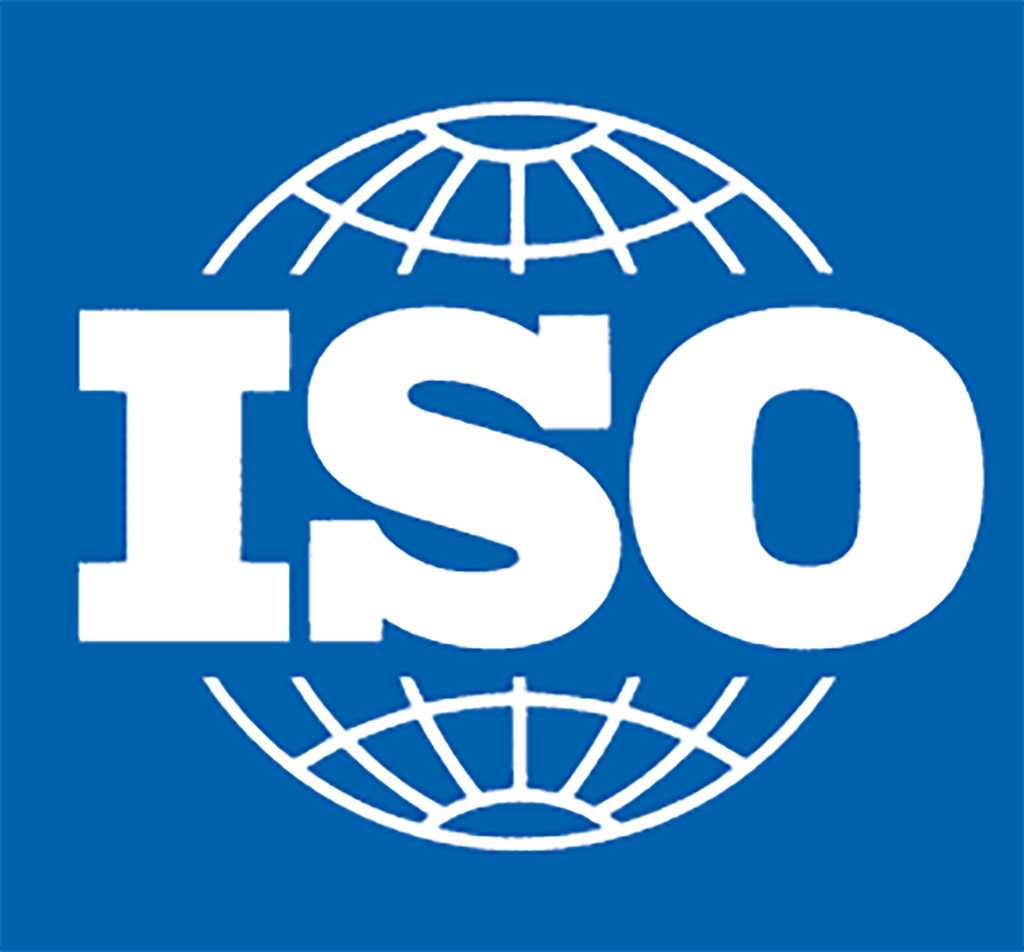

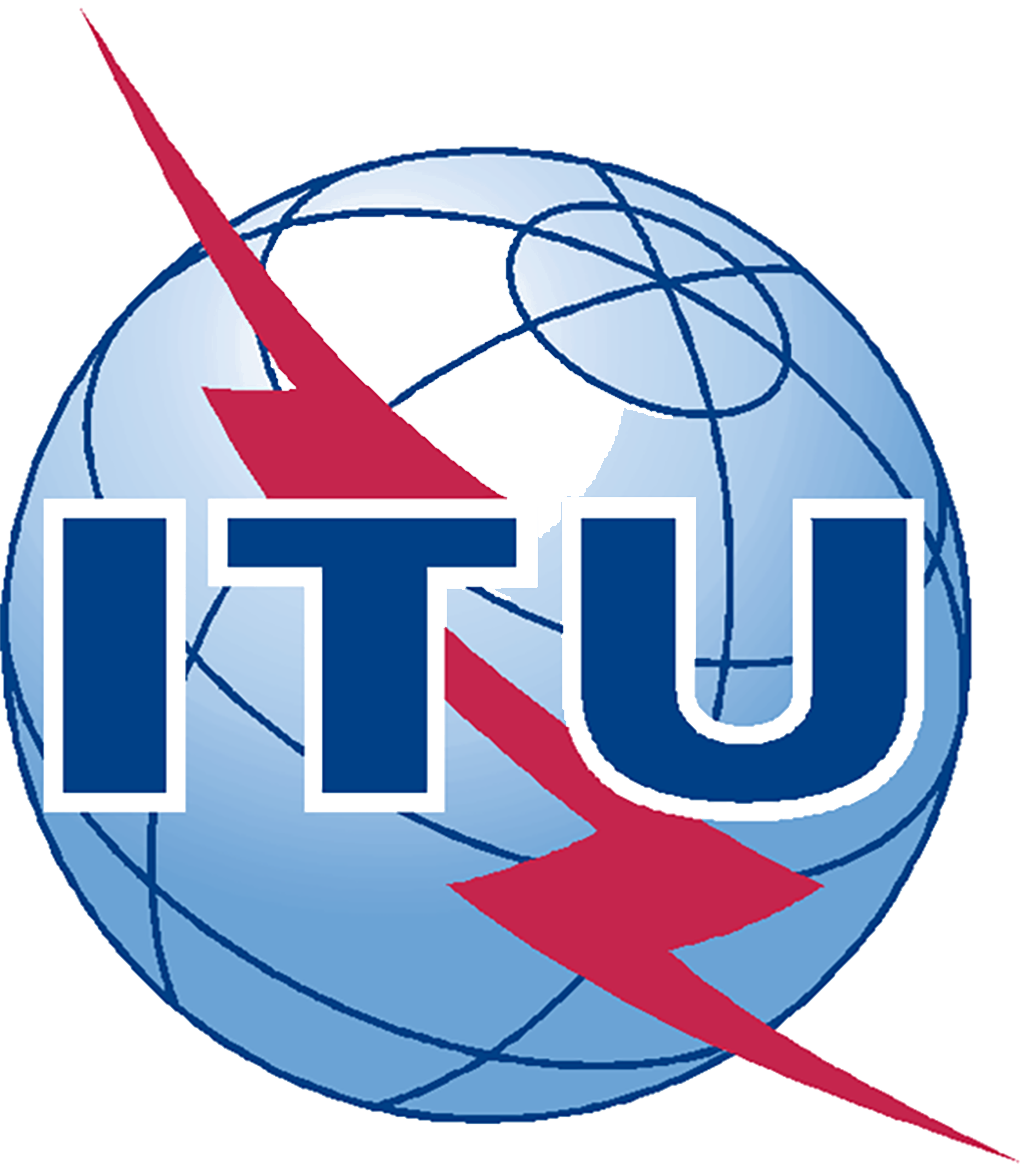
Functions of a permanent national
working body:
working body:
ISO/IEC JTC 1/SC 41 Internet of Things and related technologies
ISO/IEC JTC 1/SC 42 Artificial intelligence
ISO/IEC JTC 1/SG 3 3D Printing and scanning
ISO/IEC JTC 1/WG 7 Sensor Networks
ISO/IEC JTC 1/WG 9 Big Data
ISO/IEC JTC 1/WG 11 Smart cities
ISO/IEC JTC 1/SC 35/AHG 1 Internet of Things (IoT) User interfaces
ISO/IEC JTC 1/SC 35/WG 4 User interfaces for mobile devices
ISO/IEC JTC 1/SC 42 Artificial intelligence
ISO/IEC JTC 1/SG 3 3D Printing and scanning
ISO/IEC JTC 1/WG 7 Sensor Networks
ISO/IEC JTC 1/WG 9 Big Data
ISO/IEC JTC 1/WG 11 Smart cities
ISO/IEC JTC 1/SC 35/AHG 1 Internet of Things (IoT) User interfaces
ISO/IEC JTC 1/SC 35/WG 4 User interfaces for mobile devices
IEC ТС 124 Wearable electronic devices and technologies
IEC TC 65/JWG 21 Smart Manufacturing Reference Model(s) linked to ISO/TC 184;
IEC SyC Smart Cities;
IEC SyC Smart Energy;
IEC SG 12 Digital Transformation.
SEG 7 Smart manufacturing
SEG 8 Communication Technologies and Architectures of Electrotechnical Systems
SEG 9 Smart Home/Office Building Systems
IEC TC 65/JWG 21 Smart Manufacturing Reference Model(s) linked to ISO/TC 184;
IEC SyC Smart Cities;
IEC SyC Smart Energy;
IEC SG 12 Digital Transformation.
SEG 7 Smart manufacturing
SEG 8 Communication Technologies and Architectures of Electrotechnical Systems
SEG 9 Smart Home/Office Building Systems
Phone: +7 (495) 777-01-04
E-mail: info@tc194.ru
Russia, 121205, Moscow,
Innovation Center Skolkovo, Nobel Street, 1
E-mail: info@tc194.ru
Russia, 121205, Moscow,
Innovation Center Skolkovo, Nobel Street, 1
Contacts
Utkin Nikita Alexandrovich
Chairperson
Chairperson
Nikita Utkin has been with RVC since mid-2011, currently in the position of Head of Corporate Development. He has considerable experience in the field of technology business: from consulting and investment, and from market and technology analysts. Before that, he had a long working experience in a transnational corporation of the technological sector and business consulting.
He worked in the management bodies of a number of Russian investment instruments (funds). The sphere of competence also includes: strategic and business planning, corporate development, as well as supervising the activities of investment instruments (funds).
The last 5 years has been involved as an expert on the part of the Russian Federation in the activities of individual structures and working groups of the International Electrotechnical Commission (IEC) and the International Organization for Standardization (ISO) on the most promising technological areas.
The logical continuation of this activity was the creation in March 2017 of the technical committee for standardization "Cyber-physical systems", whose Chairman Nikita is. Within the framework of the technical committee, a number of national standards are being developed and adopted, as well as the development and harmonization of international standards (the technical committee is a mirror committee for the relevant ISO / IEC structures) in such promising technological areas as: Internet of Things (Internet of Things, Big Data, Smart Cities and Smart Manufacturing.
Nikita is actively involved in the implementation of the Digital Economy of the Russian Federation Program in Russia (Order of the Government of the Russian Federation No. 1632-r of July 28, 2017).
Nikita graduated with honors from the Faculty of Economics of St. Petersburg State University (St. Petersburg, Russia), completed his business education at the Haas School of Business, University of California Berkeley (Berkeley, USA), and studied at the Massachusetts Institute of Technology (Cambridge, USA).
He worked in the management bodies of a number of Russian investment instruments (funds). The sphere of competence also includes: strategic and business planning, corporate development, as well as supervising the activities of investment instruments (funds).
The last 5 years has been involved as an expert on the part of the Russian Federation in the activities of individual structures and working groups of the International Electrotechnical Commission (IEC) and the International Organization for Standardization (ISO) on the most promising technological areas.
The logical continuation of this activity was the creation in March 2017 of the technical committee for standardization "Cyber-physical systems", whose Chairman Nikita is. Within the framework of the technical committee, a number of national standards are being developed and adopted, as well as the development and harmonization of international standards (the technical committee is a mirror committee for the relevant ISO / IEC structures) in such promising technological areas as: Internet of Things (Internet of Things, Big Data, Smart Cities and Smart Manufacturing.
Nikita is actively involved in the implementation of the Digital Economy of the Russian Federation Program in Russia (Order of the Government of the Russian Federation No. 1632-r of July 28, 2017).
Nikita graduated with honors from the Faculty of Economics of St. Petersburg State University (St. Petersburg, Russia), completed his business education at the Haas School of Business, University of California Berkeley (Berkeley, USA), and studied at the Massachusetts Institute of Technology (Cambridge, USA).
Nikolayev Danila Evgenievich
Executive Secretary - Head of the Secretariat
Executive Secretary - Head of the Secretariat
Danila has been working in the non-commercial partnership "Russian Biometric Society" since the beginning of 2012, currently in the capacity of Director.
He has considerable experience in the development of national, interstate and international standards and is an expert of several national and international technical committees. With the participation of Danila Nikolaev, more than 40 national standards and 3 interstate standards have been developed.
Since March 2017, Danila is the Executive Secretary of the Technical Committee "Cyber-physical systems."
He has considerable experience in the development of national, interstate and international standards and is an expert of several national and international technical committees. With the participation of Danila Nikolaev, more than 40 national standards and 3 interstate standards have been developed.
Since March 2017, Danila is the Executive Secretary of the Technical Committee "Cyber-physical systems."
Facebook Review
24.11.2016
24.11.2016
The newest technologies of green construction were discussed today at a conference timed to the 7th anniversary of the Council for Environmental Construction, a non-profit organization that develops construction and energy-saving technologies in Russia in partnership with RVK and Skolkovo.
Martin Townsend of BRE (Building Research Establishment - BRE) shared his UK experience in building innovations. Advanced technologies are tested on the BRE Innovation Park site, and if they prove their effectiveness, they become part of the BREEAM international standard. "Technological changes are happening faster and faster. The building, erected six months later, saves twice as much energy, "said Townsend.
RVC in 2011 also created a site for testing automation and energy efficiency systems - the "Smart House" project. "Based on the results of the project, an analysis of standards related to smart home systems was conducted," says Nikita Utkin, head of corporate development at RVC. - And now, together with Rosstandart, we are creating a technical committee to consolidate Russian competencies in international markets with standardization tools. We invite everyone who is interested to participate in it. "
Young innovative construction companies were invited to the conference. The general director of the portfolio company FPI RVK "OPTIZ Monitoring" Yuri Nikitaev told how a unique monitoring system allows you to monitor the safety of construction projects and save money on it: "In 2013, we installed our sensors at the newly constructed building of the Central Children's Shop in Lubyanka. And our system anticipated an emergency situation: one of the walls began to slowly fall towards Cannon Street, but the builders quickly reinforced the foundation. If the accident occurred, then just one day of construction downtime would cost as much as our entire monitoring system. But even more important is ensuring the safety of people, and this can not be measured with money. "
Martin Townsend of BRE (Building Research Establishment - BRE) shared his UK experience in building innovations. Advanced technologies are tested on the BRE Innovation Park site, and if they prove their effectiveness, they become part of the BREEAM international standard. "Technological changes are happening faster and faster. The building, erected six months later, saves twice as much energy, "said Townsend.
RVC in 2011 also created a site for testing automation and energy efficiency systems - the "Smart House" project. "Based on the results of the project, an analysis of standards related to smart home systems was conducted," says Nikita Utkin, head of corporate development at RVC. - And now, together with Rosstandart, we are creating a technical committee to consolidate Russian competencies in international markets with standardization tools. We invite everyone who is interested to participate in it. "
Young innovative construction companies were invited to the conference. The general director of the portfolio company FPI RVK "OPTIZ Monitoring" Yuri Nikitaev told how a unique monitoring system allows you to monitor the safety of construction projects and save money on it: "In 2013, we installed our sensors at the newly constructed building of the Central Children's Shop in Lubyanka. And our system anticipated an emergency situation: one of the walls began to slowly fall towards Cannon Street, but the builders quickly reinforced the foundation. If the accident occurred, then just one day of construction downtime would cost as much as our entire monitoring system. But even more important is ensuring the safety of people, and this can not be measured with money. "

Facebook Review
15.12.2015
15.12.2015
Experts and companies interested in participating in the development of national and international standards in the field of Smart City, Internet of Things and Big Data are important information for you!
The International Organization for Standardization (ISO) and the International Electrotechnical Commission (IEC) are now working on the development of new international standards in the above-mentioned promising IT. In order to take into account the interests of Russia in the complicated issue of harmonizing standards, and the promotion of Russian developments to world markets was not further complicated by the mismatch of standards, it is necessary to involve Russian experts in this process.
For RVC, building competencies in this area is an important activity within the National Technology Initiative. Establishing interaction with leading global centers of standardization, joining their expert pools and governing bodies, participating in the formation of new structures is necessary for Russian technology companies to become full-fledged players in the formation of new markets, and providing this opportunity - a priority service for market working groups RVC has practical opportunities to ensure the representation of Russian experts with the right to vote in the relevant working groups and subcommittees of IEC, ISO and other international organizations. organizations.
For this, Rosstandart creates on the basis of the RVC the working groups "Internet of Things", "Reasonable City" and "Big Data". Representatives of RVC, FRI, Bauman Moscow State Technical University, the Russian Biometric Society, the Big Three, Alfaopen, Sonda Technology and Papillon gathered for the first setting joint meeting last week at the RVC office. From RVK, the chairman of the working groups was Nikita Utkin, and the executive secretary - member of TC 098 Danila Nikolaev. The tasks of the working groups are to participate in the work of IEC and ISO in their field, to interact with Russian technical committees in related fields, to participate in the international examination of draft national, interstate, regional and international standards, to develop national standards, to prepare proposals for their approval or deviation.
Rosstandart, RVC and TC 098 invite interested experts to join the work! Send applications to Standard@rusventure.ru.
The International Organization for Standardization (ISO) and the International Electrotechnical Commission (IEC) are now working on the development of new international standards in the above-mentioned promising IT. In order to take into account the interests of Russia in the complicated issue of harmonizing standards, and the promotion of Russian developments to world markets was not further complicated by the mismatch of standards, it is necessary to involve Russian experts in this process.
For RVC, building competencies in this area is an important activity within the National Technology Initiative. Establishing interaction with leading global centers of standardization, joining their expert pools and governing bodies, participating in the formation of new structures is necessary for Russian technology companies to become full-fledged players in the formation of new markets, and providing this opportunity - a priority service for market working groups RVC has practical opportunities to ensure the representation of Russian experts with the right to vote in the relevant working groups and subcommittees of IEC, ISO and other international organizations. organizations.
For this, Rosstandart creates on the basis of the RVC the working groups "Internet of Things", "Reasonable City" and "Big Data". Representatives of RVC, FRI, Bauman Moscow State Technical University, the Russian Biometric Society, the Big Three, Alfaopen, Sonda Technology and Papillon gathered for the first setting joint meeting last week at the RVC office. From RVK, the chairman of the working groups was Nikita Utkin, and the executive secretary - member of TC 098 Danila Nikolaev. The tasks of the working groups are to participate in the work of IEC and ISO in their field, to interact with Russian technical committees in related fields, to participate in the international examination of draft national, interstate, regional and international standards, to develop national standards, to prepare proposals for their approval or deviation.
Rosstandart, RVC and TC 098 invite interested experts to join the work! Send applications to Standard@rusventure.ru.

RVC and Rosstandart launched the Technical Committee on Cyber-Physical Systems
20.04.2017
20.04.2017
The committee's activities will extend to the standardization of technologies in the field of "Internet of things", "smart cities", "big data" and "smart production".
Technical Committee 194 "Cyber-physical systems" was established by the Order of the Federal Agency for Technical Regulation and Metrology No. 642 of March 27, 2017. Within the framework of its activities, it is planned to develop and adopt a number of national standards, as well as the development and harmonization of international standards. The official launch of the committee's work took place on April 18, 2017.
The creation of a technical committee under Rosstandart with the secretariat on the basis of the RVC was a logical continuation of the company's activities to support the technological business in Russia, as well as the implementation of the National Technology Initiative (STI).
The new committee included higher education institutions (ITMO University, Higher School of Economics, Moscow State University named after MV Lomonosov), a number of corporations (Angstrem-T, PJSC Gazprom Neft , PJSC "Rostelecom"), as well as software developers and research organizations.
"The created committee will allow to defend the competitive advantages of the participants of the Russian market with the tools of technological standardization, therefore we are counting on the active involvement of a wide range of partners," commented RVC General Director Alexander Povalko.
"One of the most important places in the STI strategy is the development of new advanced standards on the logic of" a new market - a new standard, "said Dmitry Peskov, Director of the" Young Professionals "section of the Agency for Strategic Initiatives. "It is important not only to create national standards, but if we are aiming at global global expansion, take part in the development of international standards."
"All three international standards organizations - ISO (ISO), IEC (IEC) and ITU (ITU) - are engaged in standards in the field of cyber-physical systems and the digital economy. Our experts should take regular part in the work of these organizations, seeking to occupy leadership positions in them, "said Anton Shalaev, Deputy Head of the Federal Agency for Technical Regulation and Metrology.
The launch of the Technical Committee was another milestone in the implementation of RVC initiatives to support the market for intelligent systems and the digital economy. Fulfilling the instruction of the President of the Russian Federation No. PR-3291 of November 3, 2011, RVC together with the Ministry of Economic Development of the Russian Federation implemented the pilot project "Smart House". For its implementation, the interaction of Russian players in the market of intelligent control systems was organized. The result was the integration of technological solutions of a large group of Russian innovative companies. Since 2013, RVC conducts expert, organizational and communication activities aimed at expanding cooperation with the leading organizations and centers of international standardization in the field of intellectual (cyber-physical) systems.
To launch the direction of standardization of promising technologies, three working groups were created at the Technical Committee for Standardization TC 098 "Biometrics and Biomonitoring" earlier: TK098 / RG1 "Internet of Things", TK098 / RG2 "Reasonable City" and TK098 / RG3 "Big Data" prototype for the Technical Committee 194 "Cyber-physical systems".
Organizations wishing to join the activities of the TC "Cyber-physical systems" created by TC 194 may send their applications to the address: info@tc194.ru.
Reference Information:
Within the framework of the established technical committee for the standardization of cyber-physical systems, it is planned to develop and adopt a number of national standards:
- GOST R «Internet of things. Reference Architecture "(harmonization with ISO / IEC 30141);
- GOST R «Internet of things. Terms and definitions "(harmonization with ISO / IEC 20924);
- GOST R «Internet of things. Interoperability of the "Internet of things" systems. Part 1. Structure "(harmonization with ISO / IEC 21823-1);
- GOST R «Internet of things. Interoperability of the "Internet of things" systems. Part X. Semantic interoperability "(harmonization with ISO / IEC 21823-X);
- GOST R "Large data. Reference Architecture "(harmonization with ISO / IEC 20547);
- GOST R "Large data. Terms and definitions "(harmonization with ISO / IEC 20546);
- GOST R «Clever city. Reference structure of ICT. Part 1. Structure of Smart City business processes "(harmonization with ISO / IEC 30145-1);
- GOST R «Clever city. Reference structure of ICT. Part 2. Knowledge structure of the Smart City "(harmonization with ISO / IEC 30145-2);
- GOST R «Clever city. Reference structure of ICT. Part 3. Engineering systems of the Smart City "(harmonization with ISO / IEC 30145-3);
- GOST R «Clever city. Indicators of ICT "(harmonization with ISO / IEC 30146).
Technical Committee 194 "Cyber-physical systems" was established by the Order of the Federal Agency for Technical Regulation and Metrology No. 642 of March 27, 2017. Within the framework of its activities, it is planned to develop and adopt a number of national standards, as well as the development and harmonization of international standards. The official launch of the committee's work took place on April 18, 2017.
The creation of a technical committee under Rosstandart with the secretariat on the basis of the RVC was a logical continuation of the company's activities to support the technological business in Russia, as well as the implementation of the National Technology Initiative (STI).
The new committee included higher education institutions (ITMO University, Higher School of Economics, Moscow State University named after MV Lomonosov), a number of corporations (Angstrem-T, PJSC Gazprom Neft , PJSC "Rostelecom"), as well as software developers and research organizations.
"The created committee will allow to defend the competitive advantages of the participants of the Russian market with the tools of technological standardization, therefore we are counting on the active involvement of a wide range of partners," commented RVC General Director Alexander Povalko.
"One of the most important places in the STI strategy is the development of new advanced standards on the logic of" a new market - a new standard, "said Dmitry Peskov, Director of the" Young Professionals "section of the Agency for Strategic Initiatives. "It is important not only to create national standards, but if we are aiming at global global expansion, take part in the development of international standards."
"All three international standards organizations - ISO (ISO), IEC (IEC) and ITU (ITU) - are engaged in standards in the field of cyber-physical systems and the digital economy. Our experts should take regular part in the work of these organizations, seeking to occupy leadership positions in them, "said Anton Shalaev, Deputy Head of the Federal Agency for Technical Regulation and Metrology.
The launch of the Technical Committee was another milestone in the implementation of RVC initiatives to support the market for intelligent systems and the digital economy. Fulfilling the instruction of the President of the Russian Federation No. PR-3291 of November 3, 2011, RVC together with the Ministry of Economic Development of the Russian Federation implemented the pilot project "Smart House". For its implementation, the interaction of Russian players in the market of intelligent control systems was organized. The result was the integration of technological solutions of a large group of Russian innovative companies. Since 2013, RVC conducts expert, organizational and communication activities aimed at expanding cooperation with the leading organizations and centers of international standardization in the field of intellectual (cyber-physical) systems.
To launch the direction of standardization of promising technologies, three working groups were created at the Technical Committee for Standardization TC 098 "Biometrics and Biomonitoring" earlier: TK098 / RG1 "Internet of Things", TK098 / RG2 "Reasonable City" and TK098 / RG3 "Big Data" prototype for the Technical Committee 194 "Cyber-physical systems".
Organizations wishing to join the activities of the TC "Cyber-physical systems" created by TC 194 may send their applications to the address: info@tc194.ru.
Reference Information:
Within the framework of the established technical committee for the standardization of cyber-physical systems, it is planned to develop and adopt a number of national standards:
- GOST R «Internet of things. Reference Architecture "(harmonization with ISO / IEC 30141);
- GOST R «Internet of things. Terms and definitions "(harmonization with ISO / IEC 20924);
- GOST R «Internet of things. Interoperability of the "Internet of things" systems. Part 1. Structure "(harmonization with ISO / IEC 21823-1);
- GOST R «Internet of things. Interoperability of the "Internet of things" systems. Part X. Semantic interoperability "(harmonization with ISO / IEC 21823-X);
- GOST R "Large data. Reference Architecture "(harmonization with ISO / IEC 20547);
- GOST R "Large data. Terms and definitions "(harmonization with ISO / IEC 20546);
- GOST R «Clever city. Reference structure of ICT. Part 1. Structure of Smart City business processes "(harmonization with ISO / IEC 30145-1);
- GOST R «Clever city. Reference structure of ICT. Part 2. Knowledge structure of the Smart City "(harmonization with ISO / IEC 30145-2);
- GOST R «Clever city. Reference structure of ICT. Part 3. Engineering systems of the Smart City "(harmonization with ISO / IEC 30145-3);
- GOST R «Clever city. Indicators of ICT "(harmonization with ISO / IEC 30146).
"Great data" and "Internet of things" will be prescribed standard
18.05.2017
18.05.2017
Rosstandart created a committee for the technical regulation of new technologies
Rosstandart established a committee to develop standards in the field of "big data", "Internet of things" and "smart cities". Among its participants are major scientific and educational centers of Russia, technology companies, nonprofit organizations of equipment and software developers. The committee promises to lobby the interests of domestic producers in international standards bodies.
The Federal Agency for Technical Regulation and Metrology (Rosstandart) signed an order (at the disposal of Izvestia) to establish a technical committee for standardization "Cyber-physical systems." The functions of the secretariat of the new structure are assigned to JSC Russian Venture Company (RVC - one of the initiators of the creation of the committee). The head of the corporate development direction of the RVC, Nikita Utkin, was appointed chairman of the committee. According to the document, the committee will standardize in several areas at once. This is the "Internet of things" (including the industrial one), as well as "big data", "smart cities", "smart production" and communication technologies. The committee included representatives of several Russian universities, research centers and companies (PJSC "Rostelecom", PJSC "Gazprom Neft", JSC "Angstrem-T"), as well as non-profit partnerships "Russoft" and "Russian Biometric Society."
Nikita Utkin told Izvestia that the main tasks of the new committee are the development, examination and approval of national standards in these areas, taking into account internationally recognized requirements, as well as lobbying the interests of Russian developers at the international level. The same tasks are prescribed in the order of Rosstandart.
- Now our technology companies are lagging behind international competitors. The latter lobby their interests both at the level of international consortiums and at the level of organizations that adopt international standards. We learn about them the last, we have to rework much in technological solutions - often our developments are simply incompatible with foreign products, which affects the potential for their commercialization, - complained Nikita Utkin.
According to him, Russian companies need to consolidate their competitive advantages with international standardization tools. Only in this way can a full-fledged ecosystem of the technological market develop.
"We are going to participate in international organizations, where, on the one hand, we will receive up-to-date information on the standards being developed, and on the other, gently lobby the interests of our developers," Utkin added. - This is important both for the export of our IT systems and equipment, and for the development of a full-fledged digital economy.
Director of the "Young Professionals" of the Agency for Strategic Initiatives (engaged in the "National Technological Initiative"), Dmitry Peskov said that STI representatives will actively participate in the development of standards - this affects all the markets presented in the STI.
"If you do not develop a standard, then you are not represented on the market," said Dmitry Peskov. "Our competitors from China and the United States are actively creating standards, and we do not have them in new markets yet.
Sergey Alimbekov, Director for Technological Development of the Internet Initiatives Development Fund (FDI), is convinced that the technical committee on cyber-physical systems will help market participants to agree. As a result, even small developers will be able to create competitive solutions easily integrated into existing IT systems.
- Now the players are competing to make their decisions become the industry standard. In the conditions of "digital feudalism" everyone pulls a blanket over himself, "Alimbekov said. - This stage is inevitable for innovative markets, but it becomes an obstacle for their development. Instead of improving solutions, developers agree on standards.
Now the players are competing to make their decisions the industry standard. In conditions of "digital feudalism" everyone pulls a blanket on himself.
According to the expert, it is important that the standards are open, known to all - it will give impetus to the development of new markets and services.
"Today there are about a thousand state information systems in Russia, but only a few of them can be integrated with each other," the expert added. - Requirements development will allow easy integration of services, including public ones. And this is an important factor of the country's competitiveness in the new digital economy.
The press service of Rosstandart could not comment on the creation of a new committee promptly.
Rosstandart established a committee to develop standards in the field of "big data", "Internet of things" and "smart cities". Among its participants are major scientific and educational centers of Russia, technology companies, nonprofit organizations of equipment and software developers. The committee promises to lobby the interests of domestic producers in international standards bodies.
The Federal Agency for Technical Regulation and Metrology (Rosstandart) signed an order (at the disposal of Izvestia) to establish a technical committee for standardization "Cyber-physical systems." The functions of the secretariat of the new structure are assigned to JSC Russian Venture Company (RVC - one of the initiators of the creation of the committee). The head of the corporate development direction of the RVC, Nikita Utkin, was appointed chairman of the committee. According to the document, the committee will standardize in several areas at once. This is the "Internet of things" (including the industrial one), as well as "big data", "smart cities", "smart production" and communication technologies. The committee included representatives of several Russian universities, research centers and companies (PJSC "Rostelecom", PJSC "Gazprom Neft", JSC "Angstrem-T"), as well as non-profit partnerships "Russoft" and "Russian Biometric Society."
Nikita Utkin told Izvestia that the main tasks of the new committee are the development, examination and approval of national standards in these areas, taking into account internationally recognized requirements, as well as lobbying the interests of Russian developers at the international level. The same tasks are prescribed in the order of Rosstandart.
- Now our technology companies are lagging behind international competitors. The latter lobby their interests both at the level of international consortiums and at the level of organizations that adopt international standards. We learn about them the last, we have to rework much in technological solutions - often our developments are simply incompatible with foreign products, which affects the potential for their commercialization, - complained Nikita Utkin.
According to him, Russian companies need to consolidate their competitive advantages with international standardization tools. Only in this way can a full-fledged ecosystem of the technological market develop.
"We are going to participate in international organizations, where, on the one hand, we will receive up-to-date information on the standards being developed, and on the other, gently lobby the interests of our developers," Utkin added. - This is important both for the export of our IT systems and equipment, and for the development of a full-fledged digital economy.
Director of the "Young Professionals" of the Agency for Strategic Initiatives (engaged in the "National Technological Initiative"), Dmitry Peskov said that STI representatives will actively participate in the development of standards - this affects all the markets presented in the STI.
"If you do not develop a standard, then you are not represented on the market," said Dmitry Peskov. "Our competitors from China and the United States are actively creating standards, and we do not have them in new markets yet.
Sergey Alimbekov, Director for Technological Development of the Internet Initiatives Development Fund (FDI), is convinced that the technical committee on cyber-physical systems will help market participants to agree. As a result, even small developers will be able to create competitive solutions easily integrated into existing IT systems.
- Now the players are competing to make their decisions become the industry standard. In the conditions of "digital feudalism" everyone pulls a blanket over himself, "Alimbekov said. - This stage is inevitable for innovative markets, but it becomes an obstacle for their development. Instead of improving solutions, developers agree on standards.
Now the players are competing to make their decisions the industry standard. In conditions of "digital feudalism" everyone pulls a blanket on himself.
According to the expert, it is important that the standards are open, known to all - it will give impetus to the development of new markets and services.
"Today there are about a thousand state information systems in Russia, but only a few of them can be integrated with each other," the expert added. - Requirements development will allow easy integration of services, including public ones. And this is an important factor of the country's competitiveness in the new digital economy.
The press service of Rosstandart could not comment on the creation of a new committee promptly.

The next stage of work on international standards of the Digital Economy will be held in St. Petersburg
24.08.2017
24.08.2017
From 9 to 13 October 2017 in St. Petersburg will be an expert session (in the status of the official meeting) of the international working group in the field of Smart Cities of the International Electrotechnical Commission (International Electrotechnical Commission, hereinafter referred to as IEC, IEC) and the International Organization for Standardization Organization for Standardization, further - ISO, ISO). This will give Russian specialists a unique opportunity to be involved in the work on the advanced standards of the Digital Economy at the highest international level.
ISO and IEC are the most significant and large international organizations working in the field of standardization, and the meeting of the expert working group in the field of high technologies is held in Russia for the first time. The ISO / IEC JTC 1 / WG 11 Smart cities working group includes technology experts from the world's leading companies who represent their countries within the working group.
"To enter the emerging markets, it is necessary to directly participate in the creation of international standards, to be leaders in this process. RVC has created a tool and a platform for this work - now participation should become mandatory for all working groups of the National Technological Initiative (NTI) and significantly improve the efficiency of work ", - says Alexander Povalko, RVC Director General.
The subject of "Smart Cities" is an integration one and includes a wide range of relevant modern technologies at the junction of the digital and physical world and is of particular importance for the implementation of the Digital Economy of the Russian Federation Program in Russia (Order of the Government of the Russian Federation No. 1632 of July 28, -р), as well as for the development of a competitive technological business. The key issues to be considered during the next meeting of the international working group will be the issues of the reference (basic) structure of information and communication technologies for smart cities, which is one of the most serious and urgent challenges for technology companies both in international markets and in Russia.
The initiative of holding this meeting in Russia belongs to the newly established technical committee on standardization 194 "Cyber-physical systems" (hereinafter referred to as the TC "Cyber-physical systems", the order of the Federal Agency for Technical Regulation and Metrology No. 642 of March 27, 2017), maintenance of the secretariat which is entrusted to RVC.
"A number of our experts are already co-directors of promising international standards," said Nikita Utkin, Chairman of the Technical Committee of the Cyber Physical Systems. "With the holding of a status meeting in Russia, we are counting on the revitalization of the work of Russian business and Russian specialists at the international level - this will be a timely basis for implementing the Digital Economy Program."
The site for the meeting of the working group is one of the members of the TC "Cyber-physical systems" University ITMO, actively working in the main areas of the technical committee.
"ITMO University not only creates and maintains high standards of education, but also contributes to the development of strategically important technological areas: the subject of" smart cities "among them is central," commented the rector of the University ITMO Vladimir Vasiliev.
Assistance in conducting this event in Russia is provided by the Federal Agency for Technical Regulation and Metrology (Rosstandart).
"Rosstandart expects the involvement of Russian business and science in international expert work - only in this way it is possible to achieve advanced positions in the emerging markets," said Deputy Head of the Federal Agency for Technical Regulation and Metrology Anton Shalaev.
A thematic Conference on the topic "Standardization of Smart City Technologies" to be held in St. Petersburg on October 11, 2017, also on the platform of the ITMO University, will be dedicated to the meeting of the international working group.
Announcement and program of the conference will be presented later.
Organizations wishing to join the activities of the Cyber Physical Systems created by the TC, as well as to assist in carrying out the indicated activities, can send their applications to the address: info@tc194.ru.
ISO and IEC are the most significant and large international organizations working in the field of standardization, and the meeting of the expert working group in the field of high technologies is held in Russia for the first time. The ISO / IEC JTC 1 / WG 11 Smart cities working group includes technology experts from the world's leading companies who represent their countries within the working group.
"To enter the emerging markets, it is necessary to directly participate in the creation of international standards, to be leaders in this process. RVC has created a tool and a platform for this work - now participation should become mandatory for all working groups of the National Technological Initiative (NTI) and significantly improve the efficiency of work ", - says Alexander Povalko, RVC Director General.
The subject of "Smart Cities" is an integration one and includes a wide range of relevant modern technologies at the junction of the digital and physical world and is of particular importance for the implementation of the Digital Economy of the Russian Federation Program in Russia (Order of the Government of the Russian Federation No. 1632 of July 28, -р), as well as for the development of a competitive technological business. The key issues to be considered during the next meeting of the international working group will be the issues of the reference (basic) structure of information and communication technologies for smart cities, which is one of the most serious and urgent challenges for technology companies both in international markets and in Russia.
The initiative of holding this meeting in Russia belongs to the newly established technical committee on standardization 194 "Cyber-physical systems" (hereinafter referred to as the TC "Cyber-physical systems", the order of the Federal Agency for Technical Regulation and Metrology No. 642 of March 27, 2017), maintenance of the secretariat which is entrusted to RVC.
"A number of our experts are already co-directors of promising international standards," said Nikita Utkin, Chairman of the Technical Committee of the Cyber Physical Systems. "With the holding of a status meeting in Russia, we are counting on the revitalization of the work of Russian business and Russian specialists at the international level - this will be a timely basis for implementing the Digital Economy Program."
The site for the meeting of the working group is one of the members of the TC "Cyber-physical systems" University ITMO, actively working in the main areas of the technical committee.
"ITMO University not only creates and maintains high standards of education, but also contributes to the development of strategically important technological areas: the subject of" smart cities "among them is central," commented the rector of the University ITMO Vladimir Vasiliev.
Assistance in conducting this event in Russia is provided by the Federal Agency for Technical Regulation and Metrology (Rosstandart).
"Rosstandart expects the involvement of Russian business and science in international expert work - only in this way it is possible to achieve advanced positions in the emerging markets," said Deputy Head of the Federal Agency for Technical Regulation and Metrology Anton Shalaev.
A thematic Conference on the topic "Standardization of Smart City Technologies" to be held in St. Petersburg on October 11, 2017, also on the platform of the ITMO University, will be dedicated to the meeting of the international working group.
Announcement and program of the conference will be presented later.
Organizations wishing to join the activities of the Cyber Physical Systems created by the TC, as well as to assist in carrying out the indicated activities, can send their applications to the address: info@tc194.ru.

The next stage of work on international standards of the Digital Economy will be held in St. Petersburg
24.08.2017
24.08.2017
October 11, 2017 in St. Petersburg on the site of the ITMO University will host a conference "Standards of Technologies of the Smart City", dedicated to standards in the field of digital economy, which for the first time in Russia will deliver leading international experts.
The theme of the digital economy is becoming increasingly important due to the development of technologies such as Internet of Things, Big Data, Smart Manufacturing or TechNet, and Smart Cities.
So, in the development of technologies for "smart cities" that are designed to improve the quality of life and convenience of receiving services, developers of technological solutions, city infrastructure developers and city managers, as well as residents of megacities themselves are interested. Work on standards in this area is aimed at achieving a balance between the development of technologies and their convenience for consumers. Based on these standards, in turn, new business models and new businesses are being formed.
Within the framework of the conference "Smart City Technologies Standards", participants will discuss issues related to the development of digital technologies, as well as their standards and regulations.
The event will be attended by developers of international standards from the UK, Canada, China, Japan, France and Germany, the first speakers in Eastern Europe, who will tell, in particular, about the rules by which standards will be applied in the coming years.
In addition, Russian technology ecosystem will be represented by experts of Russian organizations participating in the implementation of the Digital Economy of the Russian Federation Program (approved by Decree of the Government of the Russian Federation No. 1632-r of July 28, 2017).
International experts will take part in the event as speakers: Mark Fox (Toronto University, ISO / IEC), Qian Heng (Shandong Institute of Standardization, ISO / IEC), Jackie Taylor (London South Bank University, BSI), Dangeng Zhang (21 Vianet Group, Inc., ISO / IEC), IBM Technical Relations Europe, Hitachi, IEEE, Jeanne Lingenfelder (IBM Germany), Peter Parslow (Ordnance Survey), and Russian experts: Nikita Utkin (JSC " RVK ", TC" Cyber-physical systems "), Vladimir Vasiliev (ITMO University), Igor Agamirzyan (HSE), Sergei Alimbekov (FRII), Yevgeny Grabchak (Ministry of Energy of the Russian Federation), Ekaterina Rudina (Kaspersky Lab th).
The event is organized by the Technical Committee "Cyber-physical systems", JSC "Russian Venture Company" (RVC JSC) and ITMO University.
Participation in the event is free, registration is required: https://goo.gl/Nmr3fv
Location: St. Petersburg, ul. Lomonosov St. 9 (ITMO University, Assembly Hall).
Date: October 11, 2017
Time: 14.00 - 19.00
Organizers of the event:
- Technical Committee "Cyber-physical systems"
- Saint Petersburg State University of Information Technologies, Mechanics and Optics
- JSC Russian Venture Company (RVC)
Partners of the event:
- Federal Agency for Technical Regulation and Metrology (Rosstandart)
- Internet Initiatives Development Fund
- PJSC "Rostelecom"
- Kaspersky Lab
reference Information
About the Digital Economy
The program "Digital Economy of the Russian Federation" was approved by the Government in July 2017. The document defines the implementation of the main measures of state policy for the development of the digital economy in Russia, in which the data in digital form is the key factor of production in all spheres of socio-economic activity. The basic directions of the development of the digital economy of the Russian Federation include: regulatory regulation, personnel and education, the formation of research competences and technical facilities, information infrastructure and information security.
About RVC
RVC is a state fund of funds, the institute of development of the venture industry of the Russian Federation. The main objectives of RVC's activities are: to stimulate the creation of an own venture investment industry in Russia and to fulfill the functions of the Project Office of the National Technological Initiative (STI). The authorized capital of RVC is more than 30 billion rubles. 100% of the capital of RVC belongs to the Russian Federation in the person of the Federal Agency for State Property Management of the Russian Federation (Rosimuschestvo). The total number of funds formed by RVC reached 25, their total size is 35.1 billion rubles. The share of RVC - 22.5 billion rubles. The number of innovative companies approved for investment by RVC funds reached 211. The total volume of invested funds is 16.9 billion rubles.
The theme of the digital economy is becoming increasingly important due to the development of technologies such as Internet of Things, Big Data, Smart Manufacturing or TechNet, and Smart Cities.
So, in the development of technologies for "smart cities" that are designed to improve the quality of life and convenience of receiving services, developers of technological solutions, city infrastructure developers and city managers, as well as residents of megacities themselves are interested. Work on standards in this area is aimed at achieving a balance between the development of technologies and their convenience for consumers. Based on these standards, in turn, new business models and new businesses are being formed.
Within the framework of the conference "Smart City Technologies Standards", participants will discuss issues related to the development of digital technologies, as well as their standards and regulations.
The event will be attended by developers of international standards from the UK, Canada, China, Japan, France and Germany, the first speakers in Eastern Europe, who will tell, in particular, about the rules by which standards will be applied in the coming years.
In addition, Russian technology ecosystem will be represented by experts of Russian organizations participating in the implementation of the Digital Economy of the Russian Federation Program (approved by Decree of the Government of the Russian Federation No. 1632-r of July 28, 2017).
International experts will take part in the event as speakers: Mark Fox (Toronto University, ISO / IEC), Qian Heng (Shandong Institute of Standardization, ISO / IEC), Jackie Taylor (London South Bank University, BSI), Dangeng Zhang (21 Vianet Group, Inc., ISO / IEC), IBM Technical Relations Europe, Hitachi, IEEE, Jeanne Lingenfelder (IBM Germany), Peter Parslow (Ordnance Survey), and Russian experts: Nikita Utkin (JSC " RVK ", TC" Cyber-physical systems "), Vladimir Vasiliev (ITMO University), Igor Agamirzyan (HSE), Sergei Alimbekov (FRII), Yevgeny Grabchak (Ministry of Energy of the Russian Federation), Ekaterina Rudina (Kaspersky Lab th).
The event is organized by the Technical Committee "Cyber-physical systems", JSC "Russian Venture Company" (RVC JSC) and ITMO University.
Participation in the event is free, registration is required: https://goo.gl/Nmr3fv
Location: St. Petersburg, ul. Lomonosov St. 9 (ITMO University, Assembly Hall).
Date: October 11, 2017
Time: 14.00 - 19.00
Organizers of the event:
- Technical Committee "Cyber-physical systems"
- Saint Petersburg State University of Information Technologies, Mechanics and Optics
- JSC Russian Venture Company (RVC)
Partners of the event:
- Federal Agency for Technical Regulation and Metrology (Rosstandart)
- Internet Initiatives Development Fund
- PJSC "Rostelecom"
- Kaspersky Lab
reference Information
About the Digital Economy
The program "Digital Economy of the Russian Federation" was approved by the Government in July 2017. The document defines the implementation of the main measures of state policy for the development of the digital economy in Russia, in which the data in digital form is the key factor of production in all spheres of socio-economic activity. The basic directions of the development of the digital economy of the Russian Federation include: regulatory regulation, personnel and education, the formation of research competences and technical facilities, information infrastructure and information security.
About RVC
RVC is a state fund of funds, the institute of development of the venture industry of the Russian Federation. The main objectives of RVC's activities are: to stimulate the creation of an own venture investment industry in Russia and to fulfill the functions of the Project Office of the National Technological Initiative (STI). The authorized capital of RVC is more than 30 billion rubles. 100% of the capital of RVC belongs to the Russian Federation in the person of the Federal Agency for State Property Management of the Russian Federation (Rosimuschestvo). The total number of funds formed by RVC reached 25, their total size is 35.1 billion rubles. The share of RVC - 22.5 billion rubles. The number of innovative companies approved for investment by RVC funds reached 211. The total volume of invested funds is 16.9 billion rubles.
Experts called for the creation of a unified standard for the presentation of public data
07.11.2017
07.11.2017
The problem of the interpretation of information on the Internet about the activities of state bodies and local self-government bodies was discussed in St. Petersburg
Professor of the University of Toronto, Mark Fox, considers it necessary to create a standard according to which cities could upload data into the semantic web (unlike the World Wide Web, it is intended for machines). Such a statement the scientist made at the conference "Standards of technology" smart "city", organized by the University ITMO, the Technical Committee "Cyberphysical Systems" and the Russian Venture Company (RVC) in St. Petersburg.
A single standard for presenting information on the activities of state bodies and local self-government bodies would create an intelligent agent who could correctly interpret city indicators and identify the causes of certain changes in settlements, which in turn would improve the work of city services and accelerate the development "smart" cities.
As Fox explained, the machine can not always analyze data qualitatively, since one word can have several meanings. What is used in a particular case, the machine is not always clear. "For example, in English there is the word" plant. "It means both" enterprise "and" plant. "Let us imagine that this word occurs in two different documents, in different places we talk about different things, and if we analyze the data , we should know that there is no duality in understanding the same concept and concept, "the expert explained.
According to the scientist, transport, sewage, social systems and security systems are not connected in most cities, and departments develop their own information systems. Because of this, simple urban tasks, such as road laying, are performed longer.
On the example of replacing a particular section of the roadway, the expert explained how in one simple at first glance the procedure involves several organizations at once. After the tender, the developer is selected. Since old damaged pipes may be on the road section, the decision to repair should be discussed with the water supply department, as well as those responsible for the sewage system.
"In addition, when roads are being repaired, it hinders tourists." If a cultural event is planned, the police may object to the objection, and repairs may affect urban transport routes. "A simple task, it would seem, is to replace a piece of road. participation of many organizations connected with each other, we must be able to perceive information from different sources at the same time, "the expert explained.
The situation in Russia
As the vice-president of the Higher School of Economics Igor Agamirzyan noted, the only requirement for the publication of data by agencies in the Russian Federation, which now exists, is the html format. "The further arrangement of documents remains at the discretion of departments," the expert said.
At the St. Petersburg International Economic Forum (SPIEF), which was held in St. Petersburg in June 2017, ITMO specialists presented a mathematical model capable of reducing various city parameters into a single whole. It will allow city planners to understand how to better organize the infrastructure, which objects to put into operation in the first place, how to optimize the budget for construction and operation of urban facilities. The model takes into account the mobility of the population, financial flows, information and psychological environment.
The development is planned to be used in the construction of the first "smart" satellite city of Southern in the Pushkin district of St. Petersburg, which will begin in 2018 and will last 15 years. The project provides for the creation of 4.3 million square meters. m of housing (for 134 thousand people) and 1 million square meters. m of commercial real estate (for 60 thousand jobs). "Gradoobrazuyuschim enterprise", as reported on the website of the government of St. Petersburg, will be a campus ITMO area of 400 thousand square meters. m with a complex of scientific centers and laboratories.
In St. Petersburg, also launched the project "Smart City", designed for three years. According to the information on the government website, until 2020, the city plans to create a unified information system for strategic and operational control of various spheres of life. As the rector of the ITMO University Vladimir Vasiliev told in the "Expoforum" in September 2017, the project is part of the strategy of economic and social development of St. Petersburg for the period until 2030, which is aimed at solving the main problems of the city and improving the quality of life of the citizens of St. Petersburg. According to the survey results, the rector announced 29% of the citizens are dissatisfied with the state administration, 24% - improvement of the city, 21% - the quality of roads and public transport.
The material is provided by the "+1" project.
Professor of the University of Toronto, Mark Fox, considers it necessary to create a standard according to which cities could upload data into the semantic web (unlike the World Wide Web, it is intended for machines). Such a statement the scientist made at the conference "Standards of technology" smart "city", organized by the University ITMO, the Technical Committee "Cyberphysical Systems" and the Russian Venture Company (RVC) in St. Petersburg.
A single standard for presenting information on the activities of state bodies and local self-government bodies would create an intelligent agent who could correctly interpret city indicators and identify the causes of certain changes in settlements, which in turn would improve the work of city services and accelerate the development "smart" cities.
As Fox explained, the machine can not always analyze data qualitatively, since one word can have several meanings. What is used in a particular case, the machine is not always clear. "For example, in English there is the word" plant. "It means both" enterprise "and" plant. "Let us imagine that this word occurs in two different documents, in different places we talk about different things, and if we analyze the data , we should know that there is no duality in understanding the same concept and concept, "the expert explained.
According to the scientist, transport, sewage, social systems and security systems are not connected in most cities, and departments develop their own information systems. Because of this, simple urban tasks, such as road laying, are performed longer.
On the example of replacing a particular section of the roadway, the expert explained how in one simple at first glance the procedure involves several organizations at once. After the tender, the developer is selected. Since old damaged pipes may be on the road section, the decision to repair should be discussed with the water supply department, as well as those responsible for the sewage system.
"In addition, when roads are being repaired, it hinders tourists." If a cultural event is planned, the police may object to the objection, and repairs may affect urban transport routes. "A simple task, it would seem, is to replace a piece of road. participation of many organizations connected with each other, we must be able to perceive information from different sources at the same time, "the expert explained.
The situation in Russia
As the vice-president of the Higher School of Economics Igor Agamirzyan noted, the only requirement for the publication of data by agencies in the Russian Federation, which now exists, is the html format. "The further arrangement of documents remains at the discretion of departments," the expert said.
At the St. Petersburg International Economic Forum (SPIEF), which was held in St. Petersburg in June 2017, ITMO specialists presented a mathematical model capable of reducing various city parameters into a single whole. It will allow city planners to understand how to better organize the infrastructure, which objects to put into operation in the first place, how to optimize the budget for construction and operation of urban facilities. The model takes into account the mobility of the population, financial flows, information and psychological environment.
The development is planned to be used in the construction of the first "smart" satellite city of Southern in the Pushkin district of St. Petersburg, which will begin in 2018 and will last 15 years. The project provides for the creation of 4.3 million square meters. m of housing (for 134 thousand people) and 1 million square meters. m of commercial real estate (for 60 thousand jobs). "Gradoobrazuyuschim enterprise", as reported on the website of the government of St. Petersburg, will be a campus ITMO area of 400 thousand square meters. m with a complex of scientific centers and laboratories.
In St. Petersburg, also launched the project "Smart City", designed for three years. According to the information on the government website, until 2020, the city plans to create a unified information system for strategic and operational control of various spheres of life. As the rector of the ITMO University Vladimir Vasiliev told in the "Expoforum" in September 2017, the project is part of the strategy of economic and social development of St. Petersburg for the period until 2030, which is aimed at solving the main problems of the city and improving the quality of life of the citizens of St. Petersburg. According to the survey results, the rector announced 29% of the citizens are dissatisfied with the state administration, 24% - improvement of the city, 21% - the quality of roads and public transport.
The material is provided by the "+1" project.
Facebook Review
12.10.2017
12.10.2017
October 11 at the University of ITMO in St. Petersburg. Petersburg, leading international experts, representatives of development institutions and corporations, discussed the topic of the digital economy and the importance of working on them in the area to achieve a balance between the development of technologies and their convenience for consumers. We cite the participants of the conference "Standards of Technologies of the Smart City".
Nikita Utkin, Head of Corporate Development, RVC and Chairman of the TC "Cyber-physical systems", noted the need for Russian companies to work with technological standards: "If you want to be competitive on the global market and increase the export of technological products, of course, should participate in the work of the level of international organizations involved in the standardization of technologies in the field of cyber-physical systems. "
"Work on international technology standards is always working ahead of time so as not to be late and to be comfortable using of technological facilities, their compatibility and convenience. The launch in March 2017 of the technical committee" Cyber-physical systems "is an example of the work of the RVC in advance, closely related to the state in the field of the Digital Economy, "added Utkin.
Also, Nikita Utkin noted the spread of the digitalization trend: "Many organizations in the world are working on integration technology topics." According to some estimates, the world market of smart cities is expected to continue to grow from about $ 400 billion in 2014 to more than $ 1,100 billion by 2019. Digitalization is a significant trend, based on a fully understandable set of technologies: large data, artificial intelligence, Internet of things, etc. "
Agamirzyan, Igor Rubenovich, vice-president of the Higher School of Economics, noted the increasing complexity of the systems used and gave a forecast for the future development of standards: "The fundamental increase in the complexity of cyber-physical systems used in various sectors of the economy requires new approaches to standardization, first
the queue of interfaces and protocols, otherwise it becomes impossible to use. At the moment, the development of the Internet standards for things and cyber-physical systems is in the initial state, for some time the struggle for de facto industrial standards will continue, component producers and information systems. "
Mark Fox, a professor at the University of Toronto, said: "The topic of data interoperability,
also called semantic compatibility, is one of the least recognized, but at the same time, the most difficult problems. "
Dapeng Zhang, CEO, 21Vianet Group, Inc., noted the importance of the standards for the interplay between the players in the economic and technological sectors: "Technological standards for the creation of a powerful platform for launching effective interaction between economic and technological fields, This is especially evident in the conditions of the development of the digital economy. "
Qian Heng, director of the Shandong Research Institute for Standardization: "A smart city is a system of systems: it has no beginning" and "end", it is constantly changing through the development of its constituent parts. so important to have up-to-date standards - "rules" for the development of these components of the system. "
Vyacheslav Zolotnikov, Kaspersky Lab, from the point of view of the "smart city" from the point of view of its security, and also noted the importance of cybersecurity standards: "The topic of standards in relation to Smart Cities, as well as to the whole Digital Economy, is constantly under the pressure of the powerful infrastructure issues: what will happen if, for example, water supply or waste management are under cyber attack, which will lead to serious consequences? of the city? "The answers are obvious - the technological standards should contain cybersecurity issues, that the systems are designed to take into account the risks of cyberattacks from the outset, and are protected properly."
Nikita Utkin, Head of Corporate Development, RVC and Chairman of the TC "Cyber-physical systems", noted the need for Russian companies to work with technological standards: "If you want to be competitive on the global market and increase the export of technological products, of course, should participate in the work of the level of international organizations involved in the standardization of technologies in the field of cyber-physical systems. "
"Work on international technology standards is always working ahead of time so as not to be late and to be comfortable using of technological facilities, their compatibility and convenience. The launch in March 2017 of the technical committee" Cyber-physical systems "is an example of the work of the RVC in advance, closely related to the state in the field of the Digital Economy, "added Utkin.
Also, Nikita Utkin noted the spread of the digitalization trend: "Many organizations in the world are working on integration technology topics." According to some estimates, the world market of smart cities is expected to continue to grow from about $ 400 billion in 2014 to more than $ 1,100 billion by 2019. Digitalization is a significant trend, based on a fully understandable set of technologies: large data, artificial intelligence, Internet of things, etc. "
Agamirzyan, Igor Rubenovich, vice-president of the Higher School of Economics, noted the increasing complexity of the systems used and gave a forecast for the future development of standards: "The fundamental increase in the complexity of cyber-physical systems used in various sectors of the economy requires new approaches to standardization, first
the queue of interfaces and protocols, otherwise it becomes impossible to use. At the moment, the development of the Internet standards for things and cyber-physical systems is in the initial state, for some time the struggle for de facto industrial standards will continue, component producers and information systems. "
Mark Fox, a professor at the University of Toronto, said: "The topic of data interoperability,
also called semantic compatibility, is one of the least recognized, but at the same time, the most difficult problems. "
Dapeng Zhang, CEO, 21Vianet Group, Inc., noted the importance of the standards for the interplay between the players in the economic and technological sectors: "Technological standards for the creation of a powerful platform for launching effective interaction between economic and technological fields, This is especially evident in the conditions of the development of the digital economy. "
Qian Heng, director of the Shandong Research Institute for Standardization: "A smart city is a system of systems: it has no beginning" and "end", it is constantly changing through the development of its constituent parts. so important to have up-to-date standards - "rules" for the development of these components of the system. "
Vyacheslav Zolotnikov, Kaspersky Lab, from the point of view of the "smart city" from the point of view of its security, and also noted the importance of cybersecurity standards: "The topic of standards in relation to Smart Cities, as well as to the whole Digital Economy, is constantly under the pressure of the powerful infrastructure issues: what will happen if, for example, water supply or waste management are under cyber attack, which will lead to serious consequences? of the city? "The answers are obvious - the technological standards should contain cybersecurity issues, that the systems are designed to take into account the risks of cyberattacks from the outset, and are protected properly."

Standards of technology "Smart City"
12.10.2017
12.10.2017
October 11 at the University of ITMO in St. Petersburg, leading international experts, representatives of development institutions and corporations discussed the topic of digital economy and the importance of working on standards in this area to achieve a balance between the development of technologies and their convenience for consumers. We cite the participants of the conference "Standards of Technologies of the Smart City".
Nikita Utkin, Head of Corporate Development, RVC and Chairman of the TC "Cyber-physical systems", noted the need for Russian companies to work with technological standards: "If Russian companies want to be competitive on the global market and increase the export of technological products, of course, should participate in the work at the level of international organizations involved in the standardization of technologies in the field of cyber-physical systems. "
"Work on international technology standards is always working ahead of time so as not to be late and ensure comfortable use of technological facilities, their compatibility and convenience. The launch in March 2017 of the technical committee "Cyber-physical systems" is an example of the work of the RVC in advance, closely related to the state initiatives in the field of the Digital Economy, "added Utkin.
Also, Nikita Utkin noted the spread of the digitalization trend: "Many organizations in the world are working on integration technology topics. According to some estimates, the world market of smart cities is expected to continue to grow from about $ 400 billion in 2014 to more than $ 1,100 billion by 2019. Digitalization is a significant trend, based on a completely understandable set of technologies: large data, artificial intelligence, Internet of things, etc. "
Agamirzyan, Igor Rubenovich, vice-president of the Higher School of Economics, noted the increasing complexity of the systems used and gave a forecast for the future development of standards: "The fundamental increase in the complexity of cyber-physical systems used in various sectors of the economy requires new approaches to standardization, primarily interfaces and protocols , otherwise it becomes impossible to use the component base from different manufacturers in the integrated product, or the integration costs are prohibitive. At the moment, the development of Internet standards for things and cyber-physical systems is in the initial state, for some time the struggle for de facto industrial standards will continue, but soon enough, the standardization formats will begin to impose the necessary framework on component producers and information systems. "
Mark Fox, a professor at the University of Toronto, spoke about the problems faced by standards developers: "The topic of data interoperability,
Dapeng Zhang, CEO, 21Vianet Group, Inc., noted the importance of standards for interaction between players in the economic and technological sectors: "Technological standards create a powerful platform for launching effective interaction between economic and technological fields, promoting bilateral trade and facilitating investment. This is especially evident in the conditions of the development of the digital economy. "
Qian Heng, director of the Shandong Research Institute for Standardization: "A smart city is a system of systems: it has no" beginning "and" end ", it is constantly changing through the development of its constituent parts. That is why it is so important to have up-to-date standards - "rules" for the development of these components of the system. "
Vyacheslav Zolotnikov, Kaspersky Lab, expressed his opinion about the "smart city" from the point of view of its security, and also noted the importance of cybersecurity standards: "The topic of standards in relation to Smart Cities, as well as to the entire Digital Economy, is constantly under the pressure of powerful sustainability issues: what will happen if, for example, water supply or waste management are under cyber attack, which will lead to serious consequences? And imagine, what can end the attack on the critical infrastructure of the city? The answers are obvious - technological standards should contain cybersecurity issues so that the systems are designed taking into account the risks of resistance to cyberattacks from the outset, and are protected properly. "
Nikita Utkin, Head of Corporate Development, RVC and Chairman of the TC "Cyber-physical systems", noted the need for Russian companies to work with technological standards: "If Russian companies want to be competitive on the global market and increase the export of technological products, of course, should participate in the work at the level of international organizations involved in the standardization of technologies in the field of cyber-physical systems. "
"Work on international technology standards is always working ahead of time so as not to be late and ensure comfortable use of technological facilities, their compatibility and convenience. The launch in March 2017 of the technical committee "Cyber-physical systems" is an example of the work of the RVC in advance, closely related to the state initiatives in the field of the Digital Economy, "added Utkin.
Also, Nikita Utkin noted the spread of the digitalization trend: "Many organizations in the world are working on integration technology topics. According to some estimates, the world market of smart cities is expected to continue to grow from about $ 400 billion in 2014 to more than $ 1,100 billion by 2019. Digitalization is a significant trend, based on a completely understandable set of technologies: large data, artificial intelligence, Internet of things, etc. "
Agamirzyan, Igor Rubenovich, vice-president of the Higher School of Economics, noted the increasing complexity of the systems used and gave a forecast for the future development of standards: "The fundamental increase in the complexity of cyber-physical systems used in various sectors of the economy requires new approaches to standardization, primarily interfaces and protocols , otherwise it becomes impossible to use the component base from different manufacturers in the integrated product, or the integration costs are prohibitive. At the moment, the development of Internet standards for things and cyber-physical systems is in the initial state, for some time the struggle for de facto industrial standards will continue, but soon enough, the standardization formats will begin to impose the necessary framework on component producers and information systems. "
Mark Fox, a professor at the University of Toronto, spoke about the problems faced by standards developers: "The topic of data interoperability,
Dapeng Zhang, CEO, 21Vianet Group, Inc., noted the importance of standards for interaction between players in the economic and technological sectors: "Technological standards create a powerful platform for launching effective interaction between economic and technological fields, promoting bilateral trade and facilitating investment. This is especially evident in the conditions of the development of the digital economy. "
Qian Heng, director of the Shandong Research Institute for Standardization: "A smart city is a system of systems: it has no" beginning "and" end ", it is constantly changing through the development of its constituent parts. That is why it is so important to have up-to-date standards - "rules" for the development of these components of the system. "
Vyacheslav Zolotnikov, Kaspersky Lab, expressed his opinion about the "smart city" from the point of view of its security, and also noted the importance of cybersecurity standards: "The topic of standards in relation to Smart Cities, as well as to the entire Digital Economy, is constantly under the pressure of powerful sustainability issues: what will happen if, for example, water supply or waste management are under cyber attack, which will lead to serious consequences? And imagine, what can end the attack on the critical infrastructure of the city? The answers are obvious - technological standards should contain cybersecurity issues so that the systems are designed taking into account the risks of resistance to cyberattacks from the outset, and are protected properly. "

In Russia, the national standard of the Internet of things will appear
11.07.2017
11.07.2017
The Association of the Internet of Things (AIV), created by the Internet Initiatives Development Foundation (FDI), introduced a draft of a new communication standard for the Internet of things - Narrow Band Fidelity (NB-FI) to Rosstandart. About this "Vedomosti" told the predecessors of the association Sergei Alimbekov.
According to him, the standard developed by the members of the association allows automatic devices connected to the Internet of things (IoT, Internet of Things) to exchange data at a distance of up to 10 km, without recharging the batteries, the device can operate for up to 10 years. The base station NB-FI will cost about 100,000 rubles, and the radio module for connecting the sensors of the housing and utilities, smart cars, security systems - about 800 rubles, Alimbekov predicts.
NB-FI-devices will work at 868 MHz - this range in Russia and Europe is now free, permits and licenses for work in it is not required, Alimbekov emphasizes.
AIV has prepared a proposal to include the development of an exchange protocol for the Internet of things in the narrowband spectrum (NB-FI) into the draft national standardization program for 2018 - the proposal is now in line with the technical committee "Cyber-physical systems", says its chairman Nikita Utkin.
The Internet of things is an environment in which various devices, such as sensors and remote control systems, meters, vehicle monitoring tools, even household appliances (like irons and refrigerators) interact with each other without human participation. According to Ovum, in the world in 2016 there were 372 million devices working on the Internet, compared to 309 million a year earlier. At the same time, the world market of the Internet of things grew by 20% to $ 36 billion in 2016 in relation to the previous year.
There is no universally accepted communication standard for IoT in the world, the issue of harmonization of NB-FI with other standards is still open, Alimbekov concedes. According to him, the promotion of standards on the international market is an expensive and long-term event, the success of which depends on whether the technology is approved by large telecommunications equipment manufacturers or not. The promotion of NB-FI could be facilitated by major Russian industry players, such as Rostek or Rostelecom, Alimbekov said.
NB-FI is not the only promising communication standard for IoT. For example, manufacturers and operators are testing the NB-IoT technology (Narrow Band Internet of Things), standardized by the international consortium 3GPP. NB-IoT allows to service up to 50,000 devices per day, which is several times higher than the current communication standards, the representative of MTS Dmitry Solodovnikov says. The planned price of the NB-IoT terminal is $ 5, NB-IoT equipment will be able to work without changing batteries for up to 10 years, an Ericsson employee previously told Vedomosti.
In 2016, Russian customers spent on products and services related to IoT, 85 billion rubles. (or about $ 1.2 billion). Over the past year, their expenses increased by 42%, and a year earlier - by 58%, follows from the report of the research company AC & M Consulting. If in money the growth of the Russian IoT market slowed down somewhat, then, in terms of connected devices, it increased. At the end of 2016, not less than 10.7 million gadgets were connected to Russian cellular networks - 60% more than last year. In 2015, their park grew only by 22%.
At the end of 2015, the former president of Rostelecom, Sergei Kalugin, sent a letter to Russian President Vladimir Putin, in which, in particular, it was said that the state operator was ready to play the leading role of the organizer of the industrial Internet consortium (IoT version) and the operator of the industrial Internet infrastructure. The effect of implementing IoT in Russia in 4-5 years may be 0.8-1.4 trillion rubles. due to the growth of labor productivity by 10-25%, as well as reducing costs by 10-20%, Kalugin said in a letter.
According to him, the standard developed by the members of the association allows automatic devices connected to the Internet of things (IoT, Internet of Things) to exchange data at a distance of up to 10 km, without recharging the batteries, the device can operate for up to 10 years. The base station NB-FI will cost about 100,000 rubles, and the radio module for connecting the sensors of the housing and utilities, smart cars, security systems - about 800 rubles, Alimbekov predicts.
NB-FI-devices will work at 868 MHz - this range in Russia and Europe is now free, permits and licenses for work in it is not required, Alimbekov emphasizes.
AIV has prepared a proposal to include the development of an exchange protocol for the Internet of things in the narrowband spectrum (NB-FI) into the draft national standardization program for 2018 - the proposal is now in line with the technical committee "Cyber-physical systems", says its chairman Nikita Utkin.
The Internet of things is an environment in which various devices, such as sensors and remote control systems, meters, vehicle monitoring tools, even household appliances (like irons and refrigerators) interact with each other without human participation. According to Ovum, in the world in 2016 there were 372 million devices working on the Internet, compared to 309 million a year earlier. At the same time, the world market of the Internet of things grew by 20% to $ 36 billion in 2016 in relation to the previous year.
There is no universally accepted communication standard for IoT in the world, the issue of harmonization of NB-FI with other standards is still open, Alimbekov concedes. According to him, the promotion of standards on the international market is an expensive and long-term event, the success of which depends on whether the technology is approved by large telecommunications equipment manufacturers or not. The promotion of NB-FI could be facilitated by major Russian industry players, such as Rostek or Rostelecom, Alimbekov said.
NB-FI is not the only promising communication standard for IoT. For example, manufacturers and operators are testing the NB-IoT technology (Narrow Band Internet of Things), standardized by the international consortium 3GPP. NB-IoT allows to service up to 50,000 devices per day, which is several times higher than the current communication standards, the representative of MTS Dmitry Solodovnikov says. The planned price of the NB-IoT terminal is $ 5, NB-IoT equipment will be able to work without changing batteries for up to 10 years, an Ericsson employee previously told Vedomosti.
In 2016, Russian customers spent on products and services related to IoT, 85 billion rubles. (or about $ 1.2 billion). Over the past year, their expenses increased by 42%, and a year earlier - by 58%, follows from the report of the research company AC & M Consulting. If in money the growth of the Russian IoT market slowed down somewhat, then, in terms of connected devices, it increased. At the end of 2016, not less than 10.7 million gadgets were connected to Russian cellular networks - 60% more than last year. In 2015, their park grew only by 22%.
At the end of 2015, the former president of Rostelecom, Sergei Kalugin, sent a letter to Russian President Vladimir Putin, in which, in particular, it was said that the state operator was ready to play the leading role of the organizer of the industrial Internet consortium (IoT version) and the operator of the industrial Internet infrastructure. The effect of implementing IoT in Russia in 4-5 years may be 0.8-1.4 trillion rubles. due to the growth of labor productivity by 10-25%, as well as reducing costs by 10-20%, Kalugin said in a letter.

In Russia, drafted a free standard of communication for the Internet of things
11.07.2017
11.07.2017
The Association of the Internet of Things, created by the Foundation for the Development of Internet Initiatives (FREI), has introduced a draft of a single Russian communication standard for the Internet of things NB-FI (narrow band fidelity) to the RVC created jointly with Rosstandart. Developers will be able to use this standard for free, they promise in the FRI.
The project was prepared by the developers of IoT-devices with the support of the FRI. The standard is designed to transfer small amounts of data at low energy costs and is designed to solve the problem of compatibility of IoT-devices from different manufacturers. Now this is the main problem, limiting the investments in the Internet of things, they note in the FRI.
The standard is supposed to be used for remote data transmission in the sphere of housing and communal services, transport and logistics, monitoring of urban environment parameters within the "smart city" and other IoT-projects.
NB-FI will use the radio frequency 868 MHz. The fund explains that developers will be able to use the standard for free, while the use of other standards obliges to pay royalties. Because of this, the prices of IoT-devices will be minimal and will allow to save "millions of rubles" on data transfer.
The chairman of the technical committee "Cyber-physical systems" Nikita Utkin in a conversation with Rusbase explained that only the proposal to develop a draft standard in the technical committee itself, and not Rosstandart, has been submitted. The standard is not yet available, it will be developed in 2018, added Utkin.
According to him, after consideration of the application "at the minimum time", the technical committee will send the proposal to Rosstandart, after which it will be included in the draft national standardization program for 2018.
The project was prepared by the developers of IoT-devices with the support of the FRI. The standard is designed to transfer small amounts of data at low energy costs and is designed to solve the problem of compatibility of IoT-devices from different manufacturers. Now this is the main problem, limiting the investments in the Internet of things, they note in the FRI.
The standard is supposed to be used for remote data transmission in the sphere of housing and communal services, transport and logistics, monitoring of urban environment parameters within the "smart city" and other IoT-projects.
NB-FI will use the radio frequency 868 MHz. The fund explains that developers will be able to use the standard for free, while the use of other standards obliges to pay royalties. Because of this, the prices of IoT-devices will be minimal and will allow to save "millions of rubles" on data transfer.
The chairman of the technical committee "Cyber-physical systems" Nikita Utkin in a conversation with Rusbase explained that only the proposal to develop a draft standard in the technical committee itself, and not Rosstandart, has been submitted. The standard is not yet available, it will be developed in 2018, added Utkin.
According to him, after consideration of the application "at the minimum time", the technical committee will send the proposal to Rosstandart, after which it will be included in the draft national standardization program for 2018.

Moscow will choose the Internet standard of things
21.07.2017
21.07.2017
There are two options: a system on cellular networks that is beneficial to operators, and an independent
The Moscow authorities plan to test various communication technologies for the smart city and the Internet of things. This was told to "Vedomosti" by Elena Novikova, the head of the area for interaction with the business community of the Moscow Department of Information Technologies (DIT).
The program of informatization of Moscow "Information City" for 2012-2018. (its budget is 330 billion rubles, of which 216 billion rubles is allocated directly to IT from the city budget) is coming to an end - it is planned that the new program will provide for the development of a smart city, Internet of Things (IoT) in Moscow, she noted. Before talking about specific projects, it is necessary to run the infrastructure solutions and technologies, on which the city IoT can work, Novikov believes.
As the most promising for the time being, two standards are considered: NB-IoT and LoRaWAN (LoRa) - their local testing will deal with MTS and "Er-Telecom Holding." You can talk about the results of testing in six months or a year - during this time the list of technologies interesting to the city can expand, Novikova is sure. According to her, the tests from the city budget will not require the expenses: the Moscow authorities will provide the operators with organizational and infrastructural support. The city is open for cooperation with other operators and vendors, emphasizes the head of the direction.
"Er-Telecom Holding" really agreed with DIT on local testing of LoRaWAN, the company's president, Andrey Kuzyaev, told Vedomosti. He does not comment on the details of the project. According to the representative of MTS Dmitry Solodovnikov, the sensors that the operator will install in residential and non-residential premises and, possibly, in public service vehicles, will measure noise in urban areas, monitor the flow of water and electricity in apartments, the regularity of garbage disposal, turn lighting on and off in the courtyards. At the first stages of testing the sensors will be dozens, and by the end - thousands, he promises.
The effect that will achieve IoT in the city economy, Novikova was difficult to estimate. The effect of implementing IoT in Russia in 4-5 years may be 0.8-1.4 trillion rubles. due to the growth of labor productivity by 10-25%, as well as reducing costs by 10-20%, the former president of Rostelecom Sergey Kalugin mentioned in a letter to Russian President Vladimir Putin.
The NB-IoT standard, recommended by the 3GPP association, allows you to organize access to the Internet of things on the basis of existing cellular networks, which significantly reduces the cost of infrastructure construction, said Nikita Utkin, chairman of the technical committee "Cyber-physical systems" under Rosstandart. Accordingly, in its promotion are interested primarily in cellular operators, he says. LoRa-systems at the same time operate at a frequency of 868 MHz, the use of which is not licensed, for example, in Europe, says Utkin. This makes it possible to enter the segment of the Internet of things not only to cellular operators, but also to other market participants, he explains.
In fact, the use of LoRA will put an end to the monopoly of mobile operators in the mobile Internet market for the connection between automatic devices, says Telecom Daily CEO Denis Kuskov.
On the one hand, to build NB-IoT on the basis of existing LTE-networks operators will be cheaper, Novikov believes. On the other hand, in Europe there are still a lot more operators and users of LoRa than NB-IoT, she says.
Technologies in the range 860-870 MHz, where no licenses are required, are especially effective for IoT systems - tens of millions of devices in these bands are already functioning in the world, Mikhail Alekseev, managing partner of AC & M-Consulting, told Vedomosti earlier. Networks in this range are built even by mobile operators themselves, for example, Orange in France or Tele2 in Sweden, although they could theoretically use the existing radio network for IoT projects, he said.
"Rostelecom" plans to create a pilot cellular communication zone of the fifth generation (5G) in Tatarstan, in Innopolis, and it is planned to test solutions in the field of the Internet of things, the company's representative Valery Kostarev said. The network of the new generation will be actively involved in such areas as the Internet of things, smart city, intelligent home, smart transport, etc., for fixing and transferring parameters and data from a variety of devices, he assured.
From the point of view of mass application, Megafon is betting on the NB-IoT standard, says its representative Julia Dorokhina. It operates in the licensed frequency range - this guarantees reliability, security and continuity of data transmission, she notes. In March 2017, Megafon demonstrated the work of smart counters for housing and communal services on the basis of NB-IoT, and in May signed an agreement with Innopolis on creating a pilot zone of the standard and agreed to apply the smart solution in practice, recalls Dorokhin.
According to Utkin, starting the construction of an intelligent city infrastructure with the selection of a single communication standard is a controversial decision. Usually it starts by deciding the question, why it is needed, who will use this infrastructure, creating a common, basic architecture of the information system - and the standards are selected or developed only afterwards, he notes. If the entire system is inefficient and inoperative, little will depend on the chosen standard, Utkin is sure.
The Moscow authorities plan to test various communication technologies for the smart city and the Internet of things. This was told to "Vedomosti" by Elena Novikova, the head of the area for interaction with the business community of the Moscow Department of Information Technologies (DIT).
The program of informatization of Moscow "Information City" for 2012-2018. (its budget is 330 billion rubles, of which 216 billion rubles is allocated directly to IT from the city budget) is coming to an end - it is planned that the new program will provide for the development of a smart city, Internet of Things (IoT) in Moscow, she noted. Before talking about specific projects, it is necessary to run the infrastructure solutions and technologies, on which the city IoT can work, Novikov believes.
As the most promising for the time being, two standards are considered: NB-IoT and LoRaWAN (LoRa) - their local testing will deal with MTS and "Er-Telecom Holding." You can talk about the results of testing in six months or a year - during this time the list of technologies interesting to the city can expand, Novikova is sure. According to her, the tests from the city budget will not require the expenses: the Moscow authorities will provide the operators with organizational and infrastructural support. The city is open for cooperation with other operators and vendors, emphasizes the head of the direction.
"Er-Telecom Holding" really agreed with DIT on local testing of LoRaWAN, the company's president, Andrey Kuzyaev, told Vedomosti. He does not comment on the details of the project. According to the representative of MTS Dmitry Solodovnikov, the sensors that the operator will install in residential and non-residential premises and, possibly, in public service vehicles, will measure noise in urban areas, monitor the flow of water and electricity in apartments, the regularity of garbage disposal, turn lighting on and off in the courtyards. At the first stages of testing the sensors will be dozens, and by the end - thousands, he promises.
The effect that will achieve IoT in the city economy, Novikova was difficult to estimate. The effect of implementing IoT in Russia in 4-5 years may be 0.8-1.4 trillion rubles. due to the growth of labor productivity by 10-25%, as well as reducing costs by 10-20%, the former president of Rostelecom Sergey Kalugin mentioned in a letter to Russian President Vladimir Putin.
The NB-IoT standard, recommended by the 3GPP association, allows you to organize access to the Internet of things on the basis of existing cellular networks, which significantly reduces the cost of infrastructure construction, said Nikita Utkin, chairman of the technical committee "Cyber-physical systems" under Rosstandart. Accordingly, in its promotion are interested primarily in cellular operators, he says. LoRa-systems at the same time operate at a frequency of 868 MHz, the use of which is not licensed, for example, in Europe, says Utkin. This makes it possible to enter the segment of the Internet of things not only to cellular operators, but also to other market participants, he explains.
In fact, the use of LoRA will put an end to the monopoly of mobile operators in the mobile Internet market for the connection between automatic devices, says Telecom Daily CEO Denis Kuskov.
On the one hand, to build NB-IoT on the basis of existing LTE-networks operators will be cheaper, Novikov believes. On the other hand, in Europe there are still a lot more operators and users of LoRa than NB-IoT, she says.
Technologies in the range 860-870 MHz, where no licenses are required, are especially effective for IoT systems - tens of millions of devices in these bands are already functioning in the world, Mikhail Alekseev, managing partner of AC & M-Consulting, told Vedomosti earlier. Networks in this range are built even by mobile operators themselves, for example, Orange in France or Tele2 in Sweden, although they could theoretically use the existing radio network for IoT projects, he said.
"Rostelecom" plans to create a pilot cellular communication zone of the fifth generation (5G) in Tatarstan, in Innopolis, and it is planned to test solutions in the field of the Internet of things, the company's representative Valery Kostarev said. The network of the new generation will be actively involved in such areas as the Internet of things, smart city, intelligent home, smart transport, etc., for fixing and transferring parameters and data from a variety of devices, he assured.
From the point of view of mass application, Megafon is betting on the NB-IoT standard, says its representative Julia Dorokhina. It operates in the licensed frequency range - this guarantees reliability, security and continuity of data transmission, she notes. In March 2017, Megafon demonstrated the work of smart counters for housing and communal services on the basis of NB-IoT, and in May signed an agreement with Innopolis on creating a pilot zone of the standard and agreed to apply the smart solution in practice, recalls Dorokhin.
According to Utkin, starting the construction of an intelligent city infrastructure with the selection of a single communication standard is a controversial decision. Usually it starts by deciding the question, why it is needed, who will use this infrastructure, creating a common, basic architecture of the information system - and the standards are selected or developed only afterwards, he notes. If the entire system is inefficient and inoperative, little will depend on the chosen standard, Utkin is sure.
NIKITA UTKIN, RVC, TC "CYBER-PHYSICAL SYSTEMS": "RUSSIA SHOULD TAKE PART IN DEVELOPING INTERNATIONAL INTERNET STANDARDS OF THINGS"
31.10.2017
31.10.2017
Internet of Things (IoT) is a young technological area in which the standardization of key technologies is just beginning. While unified standards have not appeared, experts complain about the reigning chaos of protocols and platforms, which seriously complicates the choice of solutions for specific IoT projects. The fundamental question is how to ensure interoperability (interoperability) of IoT-networks and devices in smart cities, smart production, in everyday life. Head of the Corporate Development Department of the Russian Venture Company (RVC), Chairman of the Technical Committee for Standardization "Cyber-physical systems", an ISO / IEC expert Nikita Utkin told Tele-Satellite about the process of standardizing new technologies in Russia and its contribution to the creation of international standards .
In December 2016, the Russian Venture Company (RVC) and the Federal Agency for Technical Regulation and Metrology (Rosstandart) announced the formation of a technical committee (TC) for the standardization of "Cyber-physical systems." The TC, created on the initiative of RVC, deals with the standardization of technologies in the following areas: Internet of things (IoT), Smart cities, Big Data, Smart manufacturing, systems. The standards developed by the TC are horizontal in relation to the sectors of the economy that use technologies in its sphere of competence, and extend practically to all areas of the digital economy.
How is the work on standardization of Internet technologies of things, a smart city and other areas that your TC is engaged in? And how do the national standards that you develop are correlated with the standards of other countries and international ones - ICO / IEC?
I'll start with the background. The point is that since the Soviet time, the intensity and regularity of participation of RF representatives in international organizations involved in standardization, primarily in ISO (International Organization for Standardization (ISO)) and IEC (International Electrotechnical Commission - International Electrotechnical Commission) commission (IEC, IEC)) has significantly decreased. As for the direction of promising technologies, such as "Cyber-physical systems", including the Internet of things, intelligent production, large data, artificial intelligence, these directions, being new, not so long ago developing in our country, are in a particularly difficult situation . There is simply no Soviet heredity in the form of participation in international structures and their support is simply not there. Therefore, when together with a group of colleagues representing prominent players of the Russian technology market, we began to study this situation for key working groups and subcommittees at the international level, we found out that there are almost no Russian representatives anywhere. And three years ago we began to pilot the first working groups with the existing national TC and through this tool to send the first Russian experts to the level of ISO / IEC, and these are the only organizations whose development is officially recognized as standards, not recommendations. At the same time, for example, the developments of ITU (International Telecommunication Union), formally speaking, are still not standards and represent only recommendations.
The first representatives of the Russian Federation began to participate in the work at the level of ISO / IEC. It is important to explain that there are national and international levels of standardization (we will not talk about regional standards). What is our task? It is necessary that Russian technology companies have the opportunity to participate in global technological chains. For this, on the one hand, it is necessary to comply with the best international practices and standards. On the other hand, you need to be able to defend your interests, that is, to consolidate the key competences of your technologies in these standards. And this can only be done through direct participation in the development of international standards.
Obviously, at the international level, standards are developed with the participation of a large number of stakeholders. Accordingly, translating international standards to the national level and harmonizing them, it is necessary not only to "change the cover", but also to see what is good for Russian developers and technology companies, and what's bad. That is why in March 2017 the TC "Cyber-physical systems" was created. Already, representatives of the Russian Federation are participants of working groups and subcommittees at the international level in a number of areas, and according to some international standards, Russian experts even became co-editors.
Despite local successes, the participation of Russian representatives in the work at the international level is still not sufficiently systematic. The same group of experts should work in the appropriate areas from the beginning to the end of the development, otherwise there will be no point in this. In this respect, we place great hopes on the state program "Digital Economy", in which a significant place is given to the topic of regulatory and technical regulation. One of the five working groups of the program "Digital Economy" - on research competences and technological reserves - is headed by RVC General Director Alexander Povalko.
Not so long ago, the news appeared that within the framework of the plan of measures for cybersecurity of the program "Digital Economy" it is planned to develop an operating system (OS) for the Internet of things and industrial use with a development cost of up to 1.5 billion rubles. But there are market participants, in particular, Kaspersky Lab, which at the beginning of the year introduced its own OS / for IoT, which was created for almost 10 years. And it turns out that they know little about the initiatives under the Digital Economy program. How should such costly initiatives for the budget arise and be implemented so that key market participants are involved in this process?
Within the framework of the program "Digital Economy" five directions are currently being worked out. And this work is by no means complete. The center of competence within the security-related area is Sberbank, the working group is led by Natalia Kaspersky from InfoWatch. Should key market participants know this? Certainly, they should. Therefore, in the mentioned direction of the program "Digital Economy" 16 thematic subgroups are organized in order that the most qualified experts from the market are involved in its work. The representativeness of experts in it is high. And finally, whatever initiatives are included in the current plan of events, they are still rather abstract in nature and rather speak about the understanding of the experts of the working group and subgroups, in which direction it is necessary to move so that the country develops a digital economy in a broad sense. I am sure that in this case we are not talking about creating a product from scratch, without regard for international, and even more so, Russian experience and realities. To gather a group of even strong companies, allocate funds and say "Make Google for such a term" is difficult to implement. In order to create new technological businesses, very different tools are needed, and not least an institutional environment focused on the development of new technology businesses, or as they say - an advanced ecosystem.
When last year the roadmap for the development of the Internet of things in the Russian Federation was discussed, which later became an integral part of the program "Internet + City" supervised by Rostelecom, the RF government expert group criticized one of the key points of that document - the establishment of national IoT protocols in the country. Experts said that isolationism and the need for Russia to participate in the global technology market. What, from your point of view, is it necessary to create in the country, and what - to borrow in the global market, perhaps at the level of the same standards?
Here it is still not about the standards, but about the protocols. The situation is twofold. On the one hand, we can participate in the process of recording the positions of key players in the development of the same protocol. On the other hand, for this we must have companies that manufacture products and provide services related to these basic protocols. If this is not the case, participation in the international process loses its "hot" expediency. But it is obvious that companies in Russia with export potential must meet international standards, including standards and protocols. Otherwise, who will buy their products?
The position on this issue should be very balanced, taking into account the extent to which this protocol or standard is popular in the world, what are the prospects for its use and further development. For example, in the field of the Internet of things, solutions based on wireless technology of Low Power Wide Area networks, also known as LPWAN (Low Power Wide Area Networks), for example LoRaWAN, are actively developing now. Speaking about Russia, I would like to note that through our technical committee, on the initiative of the Internet Initiatives Development Fund and the members of the Internet Society of Things, we have begun developing our own national standard based on the exchange protocol for the Internet of things in the narrow-band spectrum NB-FI. This approach is a classic example of how companies take the best world practices, take into account national peculiarities and problems: they do not develop something that is absolutely incompatible with world technologies, but adapts them to the specifics of the country.
But the LoRa you mentioned is not a standard, but a solution developed by a pool of companies based on a protocol and a commercial chip from a certain manufacturer ...
And this is its advantage in the market in its current state.
What are the chances that the Russian NB-FI will repeat the fate of LoRa by entering foreign markets?
It is very premature to talk about this. With qualitative elaboration, this can really become a national industry standard. But this requires a lot of work. And if we talk about the international scenario - even more so.
Explain what is called, for "dummies", the mechanism of this process. There is a commercial product, for example, the company "Vaviot", involved in the creation of NB-FI. The company has customers, networks are being launched in different regions, practice is being developed. What needs to be done with this decision, so that it becomes a national standard? And what will change in this case for the "Vaviot" itself?
First of all, the process is determined by the extent to which the market itself is interested in the solution. If it is convenient, comfortable, in the future - it has interoperability, then the market will accept it and will use it. Reverse example: in the suburbs, the number of transponders used on the roads strictly corresponds to the number of toll routes. This is a fantastic example of how, within the whole technological niche, which has good chances to develop, in the current state there is complete degradation. This is inconvenient first of all to the user. If this were regulated by the standard, then the market would vote for it. And it turns out that the only winning party is the manufacturer of the transponders themselves.
In the case of the technology of "Vaviota", if this standard is traced qualitatively, then at least there will be clear rules for the key condition of demand in the market - the ability to interact between systems. When you create any network, whether home, corporate or industrial, you'll see if there is compatibility. You will find out whether there is engineering and physical security. And behind it there is a huge number of consequences and derivatives. That is why the creation and development of standards, taking into account the views of as many interesting people as possible, gives a positive economic effect.
Experts in the field of smart cities describe them as systems of systems and declare the impossibility of a situation where one standard can match all the diversity of specific urban conditions. The question arises, why in this area standards are needed as such, if the conditions for their application are so individual.
Indeed, the generally accepted approach to a smart city, as well as to a multitude of other directions - that this is a system of systems, their totality. Here again, the key issue is the interoperability of systems, their interaction in the exchange of information. Without this, nothing will work, as a consequence - there will be great economic costs and discomfort for users. For each of the subsystem technologies, a corresponding standard is possible and necessary. But it requires general rules of the game to describe how this system of systems will interact. The key moments in the work of ISO / IEC in the field of smart cities is just to ensure interoperability (interaction), including semantic. An important direction is a typical architecture, on the basis of which more specific solutions to standards can grow.
In the international work of ISO / IEC, everything is arranged very logically and consistently. First, terminology standards are developed, then standard architecture standards. It is wrong and unacceptable when in any of the previously mentioned technological areas these levels are assigned some specific regulations or specific solutions and products. The primary definition is precisely the basic standards that determine the rules of the game - the rules of interaction and interoperability and the same standard architecture. Without this, it is difficult to move forward.
Can there be a universal world standard for smart cities, something like an IP protocol that everyone who wants to be connected to the Internet enjoy?
It is difficult to foresee, but it is already obvious that the standards that are developed as international, take into account just the basic typical moments. And when developing national standards, taking into account international practice, those moments that are based on national specifics will be further developed. And in this process it is necessary to take a proactive position - to speak out with your initiatives both at the national and international levels.
We should not forget about the tremendous window of opportunity that creates proactive participation in the development of standards: the practice of harmonizing standards in the world leads to the fact that when transferring technological standards-leaders, to a greater extent - international, to a lesser extent - national ones, the approaches to work with whole technological directions, laid down in standards by companies and countries that developed them. And this is a serious potential for global technological leadership.
In December 2016, the Russian Venture Company (RVC) and the Federal Agency for Technical Regulation and Metrology (Rosstandart) announced the formation of a technical committee (TC) for the standardization of "Cyber-physical systems." The TC, created on the initiative of RVC, deals with the standardization of technologies in the following areas: Internet of things (IoT), Smart cities, Big Data, Smart manufacturing, systems. The standards developed by the TC are horizontal in relation to the sectors of the economy that use technologies in its sphere of competence, and extend practically to all areas of the digital economy.
How is the work on standardization of Internet technologies of things, a smart city and other areas that your TC is engaged in? And how do the national standards that you develop are correlated with the standards of other countries and international ones - ICO / IEC?
I'll start with the background. The point is that since the Soviet time, the intensity and regularity of participation of RF representatives in international organizations involved in standardization, primarily in ISO (International Organization for Standardization (ISO)) and IEC (International Electrotechnical Commission - International Electrotechnical Commission) commission (IEC, IEC)) has significantly decreased. As for the direction of promising technologies, such as "Cyber-physical systems", including the Internet of things, intelligent production, large data, artificial intelligence, these directions, being new, not so long ago developing in our country, are in a particularly difficult situation . There is simply no Soviet heredity in the form of participation in international structures and their support is simply not there. Therefore, when together with a group of colleagues representing prominent players of the Russian technology market, we began to study this situation for key working groups and subcommittees at the international level, we found out that there are almost no Russian representatives anywhere. And three years ago we began to pilot the first working groups with the existing national TC and through this tool to send the first Russian experts to the level of ISO / IEC, and these are the only organizations whose development is officially recognized as standards, not recommendations. At the same time, for example, the developments of ITU (International Telecommunication Union), formally speaking, are still not standards and represent only recommendations.
The first representatives of the Russian Federation began to participate in the work at the level of ISO / IEC. It is important to explain that there are national and international levels of standardization (we will not talk about regional standards). What is our task? It is necessary that Russian technology companies have the opportunity to participate in global technological chains. For this, on the one hand, it is necessary to comply with the best international practices and standards. On the other hand, you need to be able to defend your interests, that is, to consolidate the key competences of your technologies in these standards. And this can only be done through direct participation in the development of international standards.
Obviously, at the international level, standards are developed with the participation of a large number of stakeholders. Accordingly, translating international standards to the national level and harmonizing them, it is necessary not only to "change the cover", but also to see what is good for Russian developers and technology companies, and what's bad. That is why in March 2017 the TC "Cyber-physical systems" was created. Already, representatives of the Russian Federation are participants of working groups and subcommittees at the international level in a number of areas, and according to some international standards, Russian experts even became co-editors.
Despite local successes, the participation of Russian representatives in the work at the international level is still not sufficiently systematic. The same group of experts should work in the appropriate areas from the beginning to the end of the development, otherwise there will be no point in this. In this respect, we place great hopes on the state program "Digital Economy", in which a significant place is given to the topic of regulatory and technical regulation. One of the five working groups of the program "Digital Economy" - on research competences and technological reserves - is headed by RVC General Director Alexander Povalko.
Not so long ago, the news appeared that within the framework of the plan of measures for cybersecurity of the program "Digital Economy" it is planned to develop an operating system (OS) for the Internet of things and industrial use with a development cost of up to 1.5 billion rubles. But there are market participants, in particular, Kaspersky Lab, which at the beginning of the year introduced its own OS / for IoT, which was created for almost 10 years. And it turns out that they know little about the initiatives under the Digital Economy program. How should such costly initiatives for the budget arise and be implemented so that key market participants are involved in this process?
Within the framework of the program "Digital Economy" five directions are currently being worked out. And this work is by no means complete. The center of competence within the security-related area is Sberbank, the working group is led by Natalia Kaspersky from InfoWatch. Should key market participants know this? Certainly, they should. Therefore, in the mentioned direction of the program "Digital Economy" 16 thematic subgroups are organized in order that the most qualified experts from the market are involved in its work. The representativeness of experts in it is high. And finally, whatever initiatives are included in the current plan of events, they are still rather abstract in nature and rather speak about the understanding of the experts of the working group and subgroups, in which direction it is necessary to move so that the country develops a digital economy in a broad sense. I am sure that in this case we are not talking about creating a product from scratch, without regard for international, and even more so, Russian experience and realities. To gather a group of even strong companies, allocate funds and say "Make Google for such a term" is difficult to implement. In order to create new technological businesses, very different tools are needed, and not least an institutional environment focused on the development of new technology businesses, or as they say - an advanced ecosystem.
When last year the roadmap for the development of the Internet of things in the Russian Federation was discussed, which later became an integral part of the program "Internet + City" supervised by Rostelecom, the RF government expert group criticized one of the key points of that document - the establishment of national IoT protocols in the country. Experts said that isolationism and the need for Russia to participate in the global technology market. What, from your point of view, is it necessary to create in the country, and what - to borrow in the global market, perhaps at the level of the same standards?
Here it is still not about the standards, but about the protocols. The situation is twofold. On the one hand, we can participate in the process of recording the positions of key players in the development of the same protocol. On the other hand, for this we must have companies that manufacture products and provide services related to these basic protocols. If this is not the case, participation in the international process loses its "hot" expediency. But it is obvious that companies in Russia with export potential must meet international standards, including standards and protocols. Otherwise, who will buy their products?
The position on this issue should be very balanced, taking into account the extent to which this protocol or standard is popular in the world, what are the prospects for its use and further development. For example, in the field of the Internet of things, solutions based on wireless technology of Low Power Wide Area networks, also known as LPWAN (Low Power Wide Area Networks), for example LoRaWAN, are actively developing now. Speaking about Russia, I would like to note that through our technical committee, on the initiative of the Internet Initiatives Development Fund and the members of the Internet Society of Things, we have begun developing our own national standard based on the exchange protocol for the Internet of things in the narrow-band spectrum NB-FI. This approach is a classic example of how companies take the best world practices, take into account national peculiarities and problems: they do not develop something that is absolutely incompatible with world technologies, but adapts them to the specifics of the country.
But the LoRa you mentioned is not a standard, but a solution developed by a pool of companies based on a protocol and a commercial chip from a certain manufacturer ...
And this is its advantage in the market in its current state.
What are the chances that the Russian NB-FI will repeat the fate of LoRa by entering foreign markets?
It is very premature to talk about this. With qualitative elaboration, this can really become a national industry standard. But this requires a lot of work. And if we talk about the international scenario - even more so.
Explain what is called, for "dummies", the mechanism of this process. There is a commercial product, for example, the company "Vaviot", involved in the creation of NB-FI. The company has customers, networks are being launched in different regions, practice is being developed. What needs to be done with this decision, so that it becomes a national standard? And what will change in this case for the "Vaviot" itself?
First of all, the process is determined by the extent to which the market itself is interested in the solution. If it is convenient, comfortable, in the future - it has interoperability, then the market will accept it and will use it. Reverse example: in the suburbs, the number of transponders used on the roads strictly corresponds to the number of toll routes. This is a fantastic example of how, within the whole technological niche, which has good chances to develop, in the current state there is complete degradation. This is inconvenient first of all to the user. If this were regulated by the standard, then the market would vote for it. And it turns out that the only winning party is the manufacturer of the transponders themselves.
In the case of the technology of "Vaviota", if this standard is traced qualitatively, then at least there will be clear rules for the key condition of demand in the market - the ability to interact between systems. When you create any network, whether home, corporate or industrial, you'll see if there is compatibility. You will find out whether there is engineering and physical security. And behind it there is a huge number of consequences and derivatives. That is why the creation and development of standards, taking into account the views of as many interesting people as possible, gives a positive economic effect.
Experts in the field of smart cities describe them as systems of systems and declare the impossibility of a situation where one standard can match all the diversity of specific urban conditions. The question arises, why in this area standards are needed as such, if the conditions for their application are so individual.
Indeed, the generally accepted approach to a smart city, as well as to a multitude of other directions - that this is a system of systems, their totality. Here again, the key issue is the interoperability of systems, their interaction in the exchange of information. Without this, nothing will work, as a consequence - there will be great economic costs and discomfort for users. For each of the subsystem technologies, a corresponding standard is possible and necessary. But it requires general rules of the game to describe how this system of systems will interact. The key moments in the work of ISO / IEC in the field of smart cities is just to ensure interoperability (interaction), including semantic. An important direction is a typical architecture, on the basis of which more specific solutions to standards can grow.
In the international work of ISO / IEC, everything is arranged very logically and consistently. First, terminology standards are developed, then standard architecture standards. It is wrong and unacceptable when in any of the previously mentioned technological areas these levels are assigned some specific regulations or specific solutions and products. The primary definition is precisely the basic standards that determine the rules of the game - the rules of interaction and interoperability and the same standard architecture. Without this, it is difficult to move forward.
Can there be a universal world standard for smart cities, something like an IP protocol that everyone who wants to be connected to the Internet enjoy?
It is difficult to foresee, but it is already obvious that the standards that are developed as international, take into account just the basic typical moments. And when developing national standards, taking into account international practice, those moments that are based on national specifics will be further developed. And in this process it is necessary to take a proactive position - to speak out with your initiatives both at the national and international levels.
We should not forget about the tremendous window of opportunity that creates proactive participation in the development of standards: the practice of harmonizing standards in the world leads to the fact that when transferring technological standards-leaders, to a greater extent - international, to a lesser extent - national ones, the approaches to work with whole technological directions, laid down in standards by companies and countries that developed them. And this is a serious potential for global technological leadership.

Technical Committee "Cyber-physical systems" develops partner network
21.11.2017
21.11.2017
The technical committee "Cyber-physical systems", whose secretariat is entrusted with RVC, and the technical committee "Cryptographic protection of information" concluded an agreement on interaction. The document was signed by Nikita Utkin, chairman of the TC "Cyber-physical systems" and Igor Kachalin, chairman of the TC "Cryptographic protection of information." At the signing, Anton Shalaev, deputy head of the Federal Agency for Technical Regulation and Metrology, was present.
The document provides for cooperation in several areas, the key of which will be coordination of efforts in the development and implementation of national, interstate and international standards. In order to solve problems in the sphere of normative and technical regulation, the committees will interact with the working groups of the markets of the National Technological Initiative, as well as the working groups and competence centers of the program "Digital Economy of the Russian Federation". In addition, the committees plan to conduct joint expertise, taking into account such documents as the Strategy for Innovative Development of the Russian Federation for the period up to 2020, the Strategy for Economic Security of the Russian Federation until 2030, the Doctrine of Information Security of the Russian Federation and the Strategy for the Development of the Information Society in the Russian Federation for 2017 - 2030 years.
"The issues of information protection in the field of cyber-physical systems are relevant all over the world today. The topic is important for the development of a competitive technology business in Russia, it acquires special importance in connection with the implementation of the Digital Economy program. The signing of this agreement is an important step for us in solving the problems facing the Russian technological market in terms of regulatory and technical regulation of promising technologies: the Internet of things, large data, smart cities and others. I am confident that cooperation will be a great help in their promotion, "said Nikita Utkin, chairman of the TC" Cyber-physical systems ".
The chairman of the technical committee "Cryptographic protection of information" Igor Kachalin concluded: "Our committee and the TC" Cyber-physical systems "have the same approaches and views on standardization processes, the need for development of this industry, the participation of Russian experts in the world standardization processes. This gives confidence that our cooperation will lead to success. "
The document provides for cooperation in several areas, the key of which will be coordination of efforts in the development and implementation of national, interstate and international standards. In order to solve problems in the sphere of normative and technical regulation, the committees will interact with the working groups of the markets of the National Technological Initiative, as well as the working groups and competence centers of the program "Digital Economy of the Russian Federation". In addition, the committees plan to conduct joint expertise, taking into account such documents as the Strategy for Innovative Development of the Russian Federation for the period up to 2020, the Strategy for Economic Security of the Russian Federation until 2030, the Doctrine of Information Security of the Russian Federation and the Strategy for the Development of the Information Society in the Russian Federation for 2017 - 2030 years.
"The issues of information protection in the field of cyber-physical systems are relevant all over the world today. The topic is important for the development of a competitive technology business in Russia, it acquires special importance in connection with the implementation of the Digital Economy program. The signing of this agreement is an important step for us in solving the problems facing the Russian technological market in terms of regulatory and technical regulation of promising technologies: the Internet of things, large data, smart cities and others. I am confident that cooperation will be a great help in their promotion, "said Nikita Utkin, chairman of the TC" Cyber-physical systems ".
The chairman of the technical committee "Cryptographic protection of information" Igor Kachalin concluded: "Our committee and the TC" Cyber-physical systems "have the same approaches and views on standardization processes, the need for development of this industry, the participation of Russian experts in the world standardization processes. This gives confidence that our cooperation will lead to success. "
HUAWEI SUGGESTIONS WILL BE ACCOUNTED IN THE IEEE WEBSITE INTERNET STANDARD
11.12.2017
11.12.2017
Huawei's proposals for the development of the Internet for Thing (IoT) standard were adopted by the IEEE P2413 working group (Standard for An Architectural Framework for the Internet of Things).
Representatives of Huawei, IoTecha, Schneider Electric, Siemens, Deutsche Telekom, Hitachi, Kaspersky Lab, as well as IEEE itself participated in the IEEE working group (Institute for Electrical and Electronics Engineers). P2413.
The company's message says that its proposals dealt with Device Management, Connection Management, the implementation of application capabilities on the IoT Platforms (Application Enablement of IoT Platforms) and the analysis of large data (Big Data Analysis).
"Huawei considers it necessary to participate in the development of industrial standards. So, the Internet of things standard will become one of the key factors determining the successful development of the concept of "smart cities". It will increase their efficiency, security and improve the capabilities of urban management in digital transformation, "commented Huawei Enterprise Business Group technical director and Joe So's industrial solutions.
Head of the Corporate Development Department of the Russian Venture Company (RVC), Chairman of the Technical Committee for Standardization "Cyber-physical systems", an ISO / IEC expert Nikita Utkin explained to "Tele-Satellite" that the IEEE organization has an international focus in its activity, combining a wide range of specialists in the field of electrical engineering and electronics, representing various organizations, including commercial ones. At the same time, the IEEE is not an official body in the field of international standardization (such as ISO or IEC) and its members are not countries but organizations. Therefore, according to international status, the standards they develop are more correctly called "recommendations". According to Nikita Utkin, international documents for the development of IEEE and IEEE-SA can be considered, but they can not be called "standards" strictly speaking.
On the other hand, ISO / IEC standards do in fact have an international status of "standards", since they have either national standardization bodies (in the case of ISO) or national committees, some of which are managed by national standards bodies (in the case of IEC) . Therefore, ISO / IEC standards are based on country consensus and can not be sponsored by individual organizations. At the same time, ISO / IEC accepts a large number of representatives of international unions and associations, including IEEE participants. Nikita Utkin called interaction between organizations in the field of standardization "a sufficiently important and sensitive moment for international work", realized through the functioning of the institution of representatives ("liaisons").
For his part, the head of the technical standardization committee "Cyber-physical systems" considers it important to involve large international vendors in developing standards and recommendations at the level of the Architectural Framework. "However, it must be remembered that the interests of individual companies, expressed in the creation of" comfortable "industrial standards for them, often do not coincide with the interests of other market participants or end users," said Nikita Utkin in the commentary on "Tele-Satellite". He added that the likelihood that the proposals made by Huawei and included in the recommendations of the IEEE would pass through ISO / IEC, "somewhat lower", because at the level of ISO / IEC significant efforts are made to reduce the impact of individual organizations on the final international standards .
As reported, the technical committee "Cyber-physical systems", together with the Association of the Internet of Things and the Foundation for the Development of Internet Initiatives (FII), takes part in the formalization of the Russian communication standard for the Internet of things - Narrow Band Fidelity (NB-FI).
Representatives of Huawei, IoTecha, Schneider Electric, Siemens, Deutsche Telekom, Hitachi, Kaspersky Lab, as well as IEEE itself participated in the IEEE working group (Institute for Electrical and Electronics Engineers). P2413.
The company's message says that its proposals dealt with Device Management, Connection Management, the implementation of application capabilities on the IoT Platforms (Application Enablement of IoT Platforms) and the analysis of large data (Big Data Analysis).
"Huawei considers it necessary to participate in the development of industrial standards. So, the Internet of things standard will become one of the key factors determining the successful development of the concept of "smart cities". It will increase their efficiency, security and improve the capabilities of urban management in digital transformation, "commented Huawei Enterprise Business Group technical director and Joe So's industrial solutions.
Head of the Corporate Development Department of the Russian Venture Company (RVC), Chairman of the Technical Committee for Standardization "Cyber-physical systems", an ISO / IEC expert Nikita Utkin explained to "Tele-Satellite" that the IEEE organization has an international focus in its activity, combining a wide range of specialists in the field of electrical engineering and electronics, representing various organizations, including commercial ones. At the same time, the IEEE is not an official body in the field of international standardization (such as ISO or IEC) and its members are not countries but organizations. Therefore, according to international status, the standards they develop are more correctly called "recommendations". According to Nikita Utkin, international documents for the development of IEEE and IEEE-SA can be considered, but they can not be called "standards" strictly speaking.
On the other hand, ISO / IEC standards do in fact have an international status of "standards", since they have either national standardization bodies (in the case of ISO) or national committees, some of which are managed by national standards bodies (in the case of IEC) . Therefore, ISO / IEC standards are based on country consensus and can not be sponsored by individual organizations. At the same time, ISO / IEC accepts a large number of representatives of international unions and associations, including IEEE participants. Nikita Utkin called interaction between organizations in the field of standardization "a sufficiently important and sensitive moment for international work", realized through the functioning of the institution of representatives ("liaisons").
For his part, the head of the technical standardization committee "Cyber-physical systems" considers it important to involve large international vendors in developing standards and recommendations at the level of the Architectural Framework. "However, it must be remembered that the interests of individual companies, expressed in the creation of" comfortable "industrial standards for them, often do not coincide with the interests of other market participants or end users," said Nikita Utkin in the commentary on "Tele-Satellite". He added that the likelihood that the proposals made by Huawei and included in the recommendations of the IEEE would pass through ISO / IEC, "somewhat lower", because at the level of ISO / IEC significant efforts are made to reduce the impact of individual organizations on the final international standards .
As reported, the technical committee "Cyber-physical systems", together with the Association of the Internet of Things and the Foundation for the Development of Internet Initiatives (FII), takes part in the formalization of the Russian communication standard for the Internet of things - Narrow Band Fidelity (NB-FI).

In Russia, there were "smart cities"
25.12.2017
25.12.2017
In the "smart city" among the largest Russian cities, Moscow, St. Petersburg, Ekaterinburg and Kazan are the most developed, and Volgograd and Samara are behind, according to the estimates of the National Research Institute of Technology and Communications. Among the indicators, according to which the cities were estimated, is the number of ATMs, Wi-Fi points and car karchering. Such indicators are not always correct and are often associated with the overall development of the city, experts say.
The National Research Institute of Technology and Communication (NIITS, part of the structure of businessman Vitaly Yusufov) assessed the development of "smart cities" in Russia, follows from the presentation of the institute (there is a "b"). The Institute compared, according to the indicators developed by it, 15 cities with a million population and Sochi. Leaders in the level of development in the sphere of "smart city" are Moscow and St. Petersburg, Kazan and Yekaterinburg are among the most effectively developing. Samara and Volgograd are classified as beginners, the rest are in the developing category. At the same time, for example, the density of companies working in the field of information and communication technologies turned out to be highest in Ufa, Krasnoyarsk is leading in terms of the number of Wi-Fi points relative to the city's area, Yekaterinburg is the number of ATMs, and Moscow is the number of car-making cars. Based on the results of the research, the NIITS concluded that the development of "smart cities" in Russia "is hampered by the lack of a regulatory and legal and regulatory framework, as well as a unified system of indicators of the quality of urban services and related indicators of the smart city."
In the "Megaphone", which implemented technologies of the "smart city" in the Olympic Sochi, they agree with the conclusion. "To understand how to improve the digital infrastructure, not only at the federal level, but also in individual cities, we need benchmarks," the company noted. Invests in this direction and VimpelCom, in which among the projects of "smart city" are cited as an example of "smart lighting", traffic management and parking and video surveillance with elements of analytics.
Rostelecom also agrees with the need to develop criteria for a "smart city", but the indicators proposed by NIITS are called incorrect. "For example, there are no indicators related to industry, production, development of scientific and technical clusters and technology parks. At the same time, the level of development of Internet booking is indicated as an indicator, it is connected with the availability of the Internet, but it is determined by many other factors - the level of social development of the region, its location, tourist attractiveness, "the press service of the operator explains. In October 2017, Rostelecom entered the national consortium "Smart City", in which the Ministry of Communications, Rosatom, ITMO and the Economics Department of the Moscow State University also take part. The tasks of the consortium include the development of criteria for assessing the use of solutions of the "smart city".
NIITS itself is included in the working group "Smart City" on the site of the Association of Internet Market Participants, created at the initiative of the Internet Initiatives Development Foundation (FII). Most of the cities now do not have indicators that could characterize the level of development in the sphere of "smart city", the FDI states. According to Nikita Utkin, Chairman of the Technical Committee for Standardization "Cyberphysical Systems" of the Russian Venture Company, the work of the NIITS can form the basis of the national standards of "smart cities". "Since there is no single methodology for assessment, any study based on sound methodology and real data can be an additional source of information for making managerial decisions," says Denis Serezhenko, Business Development Director at Huawei Enterprise Business Group in Russia. For business, for example, this is the definition of the direction of investment for the next few years, he explains.
The National Research Institute of Technology and Communication (NIITS, part of the structure of businessman Vitaly Yusufov) assessed the development of "smart cities" in Russia, follows from the presentation of the institute (there is a "b"). The Institute compared, according to the indicators developed by it, 15 cities with a million population and Sochi. Leaders in the level of development in the sphere of "smart city" are Moscow and St. Petersburg, Kazan and Yekaterinburg are among the most effectively developing. Samara and Volgograd are classified as beginners, the rest are in the developing category. At the same time, for example, the density of companies working in the field of information and communication technologies turned out to be highest in Ufa, Krasnoyarsk is leading in terms of the number of Wi-Fi points relative to the city's area, Yekaterinburg is the number of ATMs, and Moscow is the number of car-making cars. Based on the results of the research, the NIITS concluded that the development of "smart cities" in Russia "is hampered by the lack of a regulatory and legal and regulatory framework, as well as a unified system of indicators of the quality of urban services and related indicators of the smart city."
In the "Megaphone", which implemented technologies of the "smart city" in the Olympic Sochi, they agree with the conclusion. "To understand how to improve the digital infrastructure, not only at the federal level, but also in individual cities, we need benchmarks," the company noted. Invests in this direction and VimpelCom, in which among the projects of "smart city" are cited as an example of "smart lighting", traffic management and parking and video surveillance with elements of analytics.
Rostelecom also agrees with the need to develop criteria for a "smart city", but the indicators proposed by NIITS are called incorrect. "For example, there are no indicators related to industry, production, development of scientific and technical clusters and technology parks. At the same time, the level of development of Internet booking is indicated as an indicator, it is connected with the availability of the Internet, but it is determined by many other factors - the level of social development of the region, its location, tourist attractiveness, "the press service of the operator explains. In October 2017, Rostelecom entered the national consortium "Smart City", in which the Ministry of Communications, Rosatom, ITMO and the Economics Department of the Moscow State University also take part. The tasks of the consortium include the development of criteria for assessing the use of solutions of the "smart city".
NIITS itself is included in the working group "Smart City" on the site of the Association of Internet Market Participants, created at the initiative of the Internet Initiatives Development Foundation (FII). Most of the cities now do not have indicators that could characterize the level of development in the sphere of "smart city", the FDI states. According to Nikita Utkin, Chairman of the Technical Committee for Standardization "Cyberphysical Systems" of the Russian Venture Company, the work of the NIITS can form the basis of the national standards of "smart cities". "Since there is no single methodology for assessment, any study based on sound methodology and real data can be an additional source of information for making managerial decisions," says Denis Serezhenko, Business Development Director at Huawei Enterprise Business Group in Russia. For business, for example, this is the definition of the direction of investment for the next few years, he explains.
IN RUSSIA BEGAN THE STANDARDIZATION OF THE INTERNET OF THINGS, "SMART CITIES" AND "ARTIFICIAL INTELLIGENCE»
06.04.2018
06.04.2018
MOSCOW, April 6, 2018-exactly one year after the creation of the technical Committee for standardization № 194 "Cyberphysical systems" (TC 194), in the second half of March 2018 the order of the Federal Agency for technical regulation and Metrology (Rosstandart) on the expansion of the field of activity of the Committee was signed.
The activities of TC 194, the Secretariat of which operates on the basis of JSC "RVC", now applies to the standardization of technologies: "Internet of things" (Internet of things), including "Industrial Internet of things" (Industrial Internet of things), "Smart cities" (Smart cities), "Big data" (Big data), "Smart production" (Smart manufacturing), as well as "Artificial intelligence" (Artificial intelligence).
"At the end of 2017, within the framework of international organizations in the field of ISO and IEC standardization, work began in the direction of artificial intelligence. Timely inclusion of Russian experts in this process, as well as simultaneous work on national standards in this area will avoid regulatory and technical lag and provide the prerequisites for the accelerated implementation of new technological solutions, simplify and improve the efficiency of procurement for state and municipal needs, in General, aimed at increasing the export potential of Russian technological developments in the world",-said the Chairman of TC 194 Nikita Utkin.
"The technical Committee for standardization" Cyberphysical systems "is already one of the tools of normative and technical development of the digital economy, being actively integrated into the implementation of state programs in the field of advanced technologies: first of all, the program" Digital economy of the Russian Federation " and the National technology initiative (NTI). During the year of its existence, this technical Committee has managed to "acquire" strong expertise both in Russia and abroad, timely tracking global technological trends. New activities will allow to broadcast and develop them competently in Russia," said Anton Shalaev, Deputy Head of the Federal Agency for technical regulation and Metrology (Rosstandart).
Technological directions, which are engaged in TC 194, belong to the category of" end-to-end technologies", extending its impact on all spheres of human life, and are of particular importance for the digital transformation of sectors of the national economy. Cross-cutting technologies correspond to the priorities of the" strategy of scientific and technological development of the Russian Federation " and are aimed at reducing the backlog of Russia from the world technological leaders, as well as contribute to effective investment in the field of science and technology, ensuring the security of the country.
Currently, TC 194 is already working on a number of national standards, including:
GOST R " Information technologies. Internet of things. Terms and definitions», GOST R " Information technologies. Internet of things. Reference architecture of the Internet of things and industrial Internet of things», GOST R " Information technologies. Internet of things. Exchange Protocol for the Internet of things in the narrowband spectrum (NB-FI)".
Standardization issues in the field of cyberphysical systems with the participation of TC 194 representatives will be discussed at the Forum "Information technologies in the service of the military-industrial complex" on April 24-25, 2018 in Yalta.
According to Nikita Utkin, of particular relevance is the work on the development and application of standards of "artificial intelligence" in various technological areas, as well as "digital twins" and neural networks. The next step in the very near future should also be the development of families of "machine learning" standards, which are a logical step in the cumulative development of "big data", "Internet of things" and "artificial intelligence" standards.
Technical Committee on standardization 194 "Cyberphysical systems" unites leading scientific and public organizations, technology companies, non-profit organizations of hardware and software developers. The initiators of the inclusion of a new direction in the activities of TC 194 were JSC "RVC", FGAOU VO "ITMO University" And the Foundation for advanced studies.
Organizations wishing to join the activities of TC 194, including new directions, can send relevant applications to the address info@tc194.ru Oh.
The activities of TC 194, the Secretariat of which operates on the basis of JSC "RVC", now applies to the standardization of technologies: "Internet of things" (Internet of things), including "Industrial Internet of things" (Industrial Internet of things), "Smart cities" (Smart cities), "Big data" (Big data), "Smart production" (Smart manufacturing), as well as "Artificial intelligence" (Artificial intelligence).
"At the end of 2017, within the framework of international organizations in the field of ISO and IEC standardization, work began in the direction of artificial intelligence. Timely inclusion of Russian experts in this process, as well as simultaneous work on national standards in this area will avoid regulatory and technical lag and provide the prerequisites for the accelerated implementation of new technological solutions, simplify and improve the efficiency of procurement for state and municipal needs, in General, aimed at increasing the export potential of Russian technological developments in the world",-said the Chairman of TC 194 Nikita Utkin.
"The technical Committee for standardization" Cyberphysical systems "is already one of the tools of normative and technical development of the digital economy, being actively integrated into the implementation of state programs in the field of advanced technologies: first of all, the program" Digital economy of the Russian Federation " and the National technology initiative (NTI). During the year of its existence, this technical Committee has managed to "acquire" strong expertise both in Russia and abroad, timely tracking global technological trends. New activities will allow to broadcast and develop them competently in Russia," said Anton Shalaev, Deputy Head of the Federal Agency for technical regulation and Metrology (Rosstandart).
Technological directions, which are engaged in TC 194, belong to the category of" end-to-end technologies", extending its impact on all spheres of human life, and are of particular importance for the digital transformation of sectors of the national economy. Cross-cutting technologies correspond to the priorities of the" strategy of scientific and technological development of the Russian Federation " and are aimed at reducing the backlog of Russia from the world technological leaders, as well as contribute to effective investment in the field of science and technology, ensuring the security of the country.
Currently, TC 194 is already working on a number of national standards, including:
GOST R " Information technologies. Internet of things. Terms and definitions», GOST R " Information technologies. Internet of things. Reference architecture of the Internet of things and industrial Internet of things», GOST R " Information technologies. Internet of things. Exchange Protocol for the Internet of things in the narrowband spectrum (NB-FI)".
Standardization issues in the field of cyberphysical systems with the participation of TC 194 representatives will be discussed at the Forum "Information technologies in the service of the military-industrial complex" on April 24-25, 2018 in Yalta.
According to Nikita Utkin, of particular relevance is the work on the development and application of standards of "artificial intelligence" in various technological areas, as well as "digital twins" and neural networks. The next step in the very near future should also be the development of families of "machine learning" standards, which are a logical step in the cumulative development of "big data", "Internet of things" and "artificial intelligence" standards.
Technical Committee on standardization 194 "Cyberphysical systems" unites leading scientific and public organizations, technology companies, non-profit organizations of hardware and software developers. The initiators of the inclusion of a new direction in the activities of TC 194 were JSC "RVC", FGAOU VO "ITMO University" And the Foundation for advanced studies.
Organizations wishing to join the activities of TC 194, including new directions, can send relevant applications to the address info@tc194.ru Oh.



